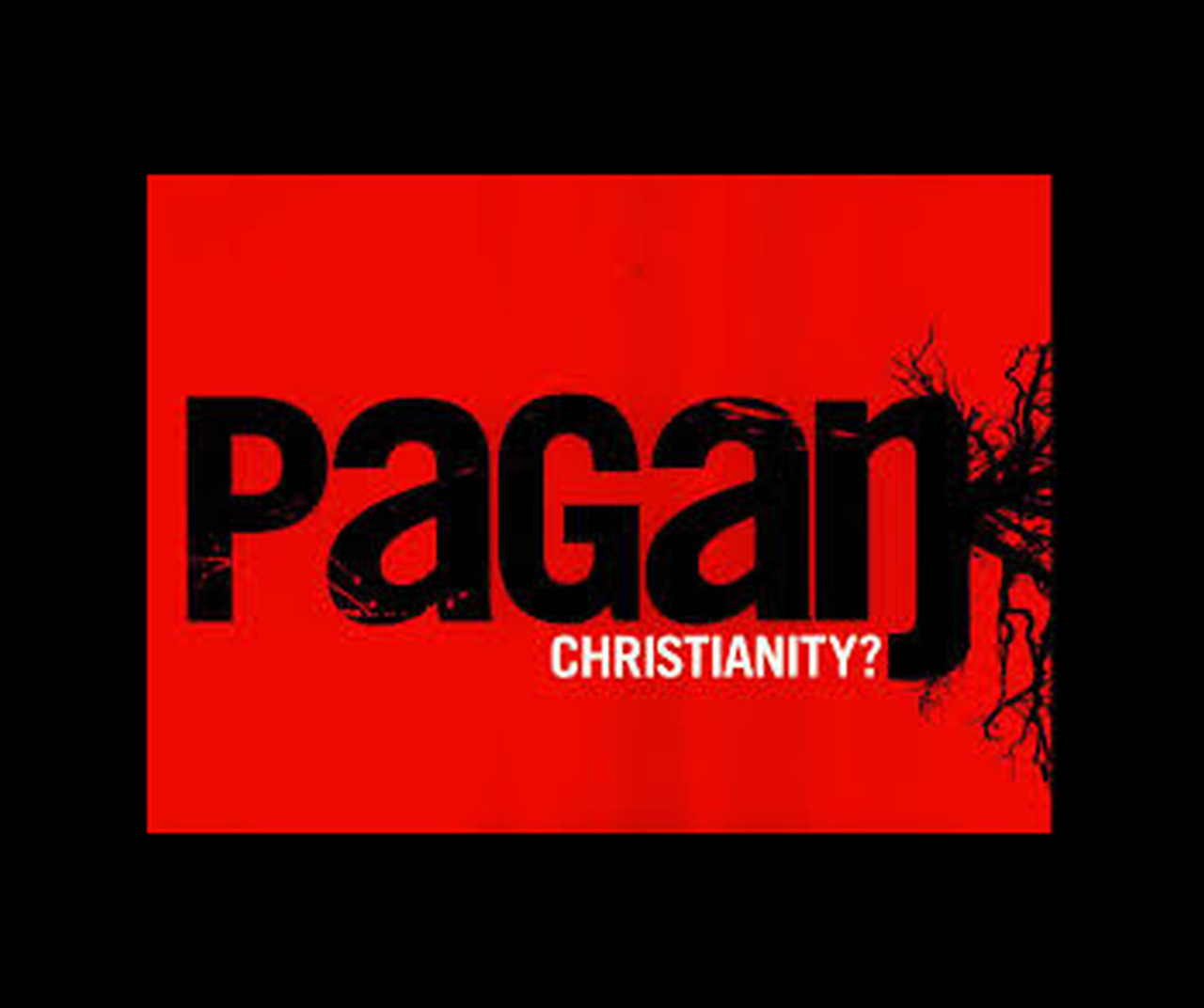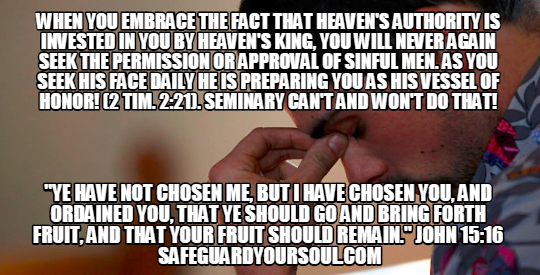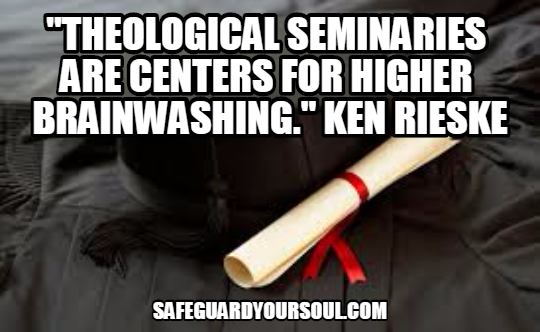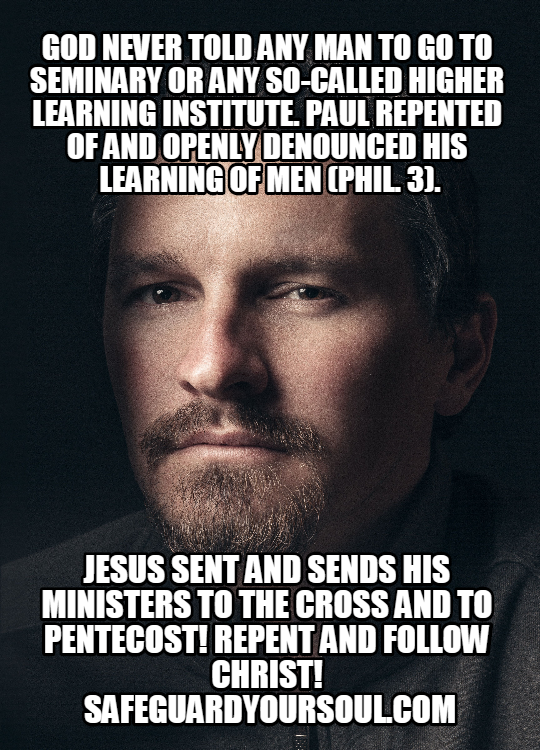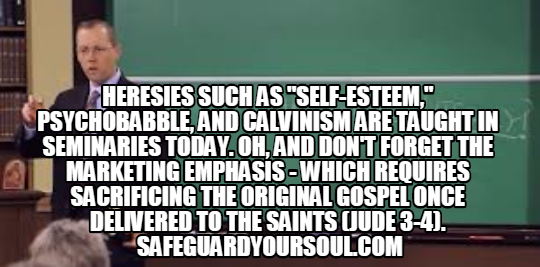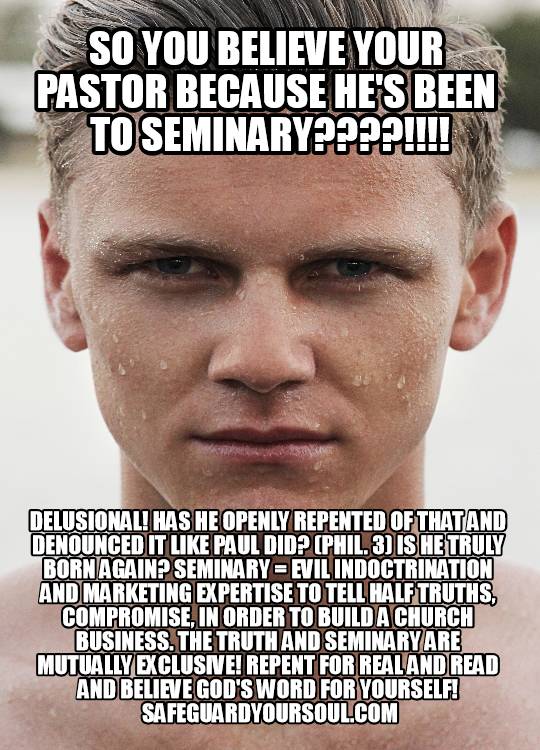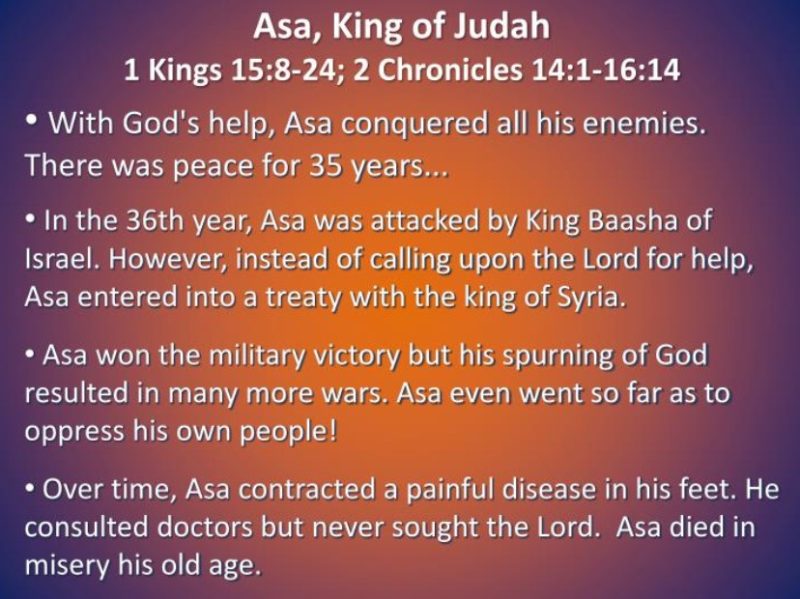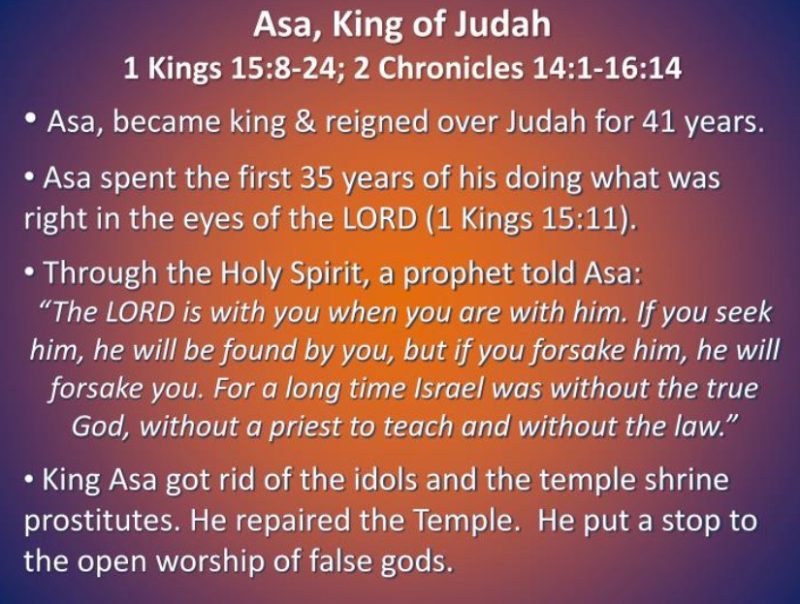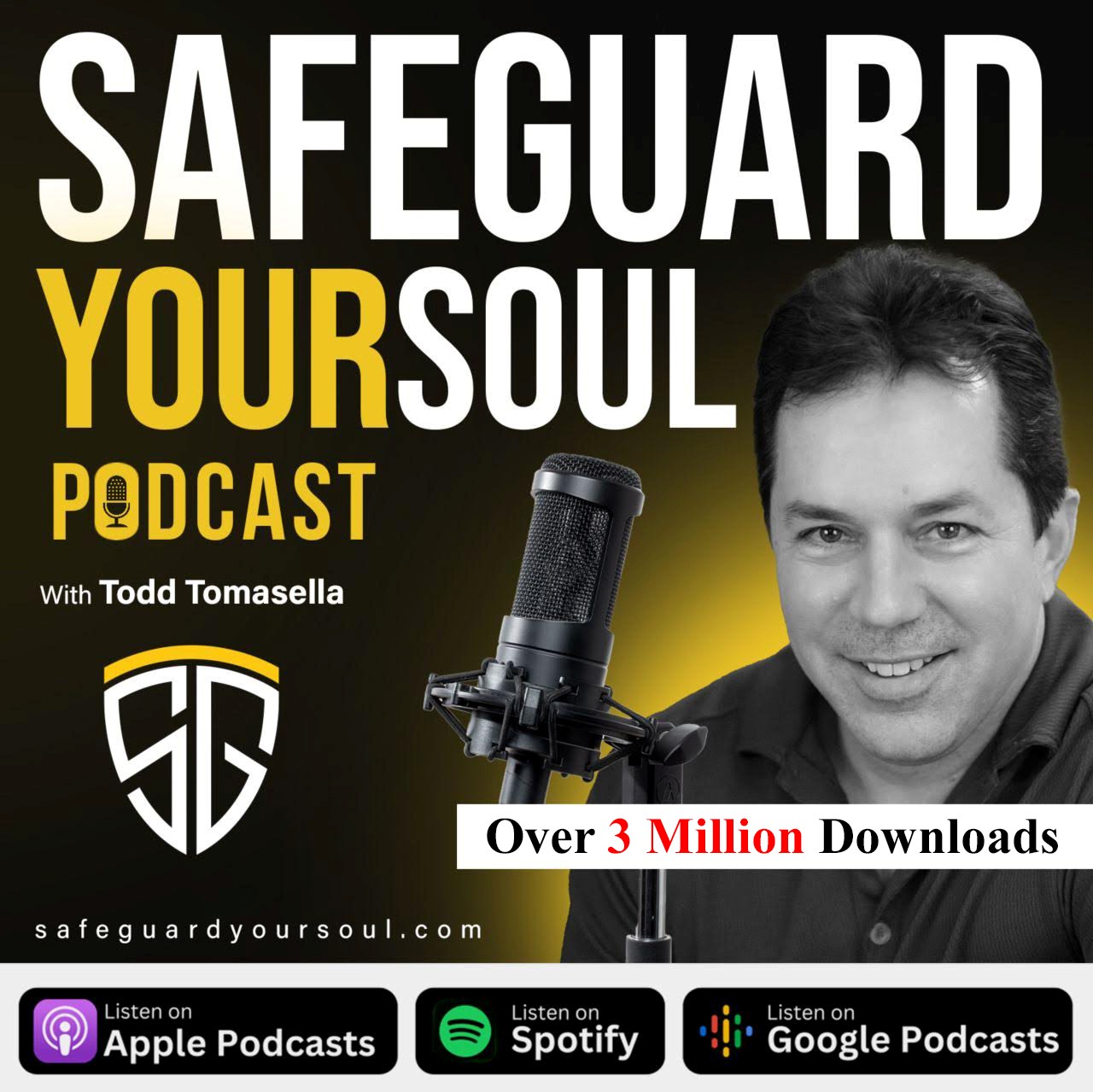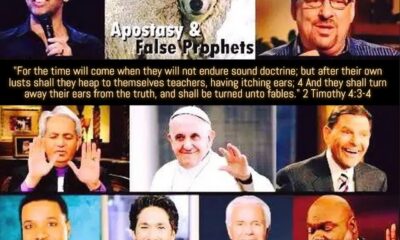“This book has shocked me to the core. No wonder the writer warns that ‘if you are not willing to have your Christianity seriously examined do not read this book. Spare yourself the trouble of having your Christian life turned upside down!’ Wow. I think this book just took my Christianity to a whole new level of understanding! I am shell shocked that I did not know any of this. Every Christian should read this book. If they dare.” Karen Cochran
Pagan Christianity by Frank Viola and George Barna
“The Christian faith was born in believer’s homes, yet every Sunday morning, scores of Christians sit in a building with pagan origins that is based upon Pagan Philosophy”.
“We somehow have been taught to feel holier when we are in ‘the house of God’ and have inherited a pathological dependency upon edifice to carry out our worship to God”.
“We are doing great damage to the message of the New testament by calling man made buildings ‘churches’.
“The order of worship includes threefold structure: (1) singing, (2) the sermon, and (3) closing prayer or song. This order of worship is viewed as sacrosanct in the eyes of many present-day Christians. But why? Again, it is due simply to the titanic power of tradition. And that tradition has set the Sunday morning order of worship in concrete … never to be moved”.
“As Will Durant, author of The Story of Civilization put it, Pagan isles remained in the spreading Christian sea. This was a tragic shift from the primitive simplicity that the church of Jesus Christ first knew”.
“We so easily forget that the early Christians turned the world upside down without them”.
“Our study of the liturgical history of the Lutheran (sixteenth century), Reformed (sixteenth century), Puritans (sixteenth century), Methodists (eighteenth century), Frontier-Revivalists (eighteenth to nineteenth centuries), and Pentecostals (twentieth century) uncovers one inescapable point: For the last five hundred years, the Protestant order of worship has undergone minimal change”. Pg.73 .
“As one author put it, ‘The Reformers accepted in substance the ancient Catholic pattern of worship…the basic structures of their services were almost universally taken from the late medieval orders of various sorts'”. pg 74
“In the end, then, the Reformers reformed the Catholic liturgy only slightly. Their main contribution was in changing the central focus. In the words of one scholar, ‘Catholicism increasingly followed the path of the (pagan) cults in making a rite the center of its activities, and Protestantism followed the path of the synagogue in placing the book at the center of it’s services’. Unfortunately, neither Catholics nor Protestants were successful in allowing Jesus Christ to be the center and head of their gatherings. Nor were they successful at liberating and unleashing the body of Christ to minister one to another in the gathering, as the New Testament envisions”. pg 74
“Because of the Reformation the Bible replaced the Eucharist and the Pastor replaced the priest. But there is still a directing of God’s people, rendering them as silent spectators. The centrality of the Author of the book was never restored. Hence, the Reformers dramatically failed to put their finger on the nerve of the original problem: a clergy-led worship service attended by a passive laity. It is not surprising, then, that the Reformers viewed themselves as reformed Catholics”. pg. 74
“Not only is the traditional order of service unscriptural and heavily influenced by paganism (which runs contrary to what is often preached from the pulpit), it does not lead to the spiritual growth God intended”. pg 75
“The Protestant order of worship represses mutual participation and growth of Christian community. It puts a choke hold on the functioning of the body of Christ by silencing its members. There is absolutely no room for anyone to give a word of exhortation, share an insight, start or introduce a song, or spontaneously lead a prayer. You are forced to be a muted, staid pew holder! You are prevented from being enriched by the other members of the body as well as being able to enrich them yourself”. pg 75
The Protestant order of worship strangles the headship of Jesus Christ. The entire service is directed by one person. You are limited to the knowledge, gifting, and experience of one member of the body- the Pastor. Where is the freedom for our Lord Jesus to speak through his body at will? Where in the liturgy may God give a brother or sister a word to share with the whole congregation? The order of worship allows for no such thing. Jesus Christ has no freedom to express Himself through His body at his discretion. He too is rendered a passive spectator”. pg 76
“Every Sunday you attend the service to be bandaged and recharged like all the other wounded soldiers. Far to often, however, the bandaging and the recharging never takes place. The reason is quite simple. The New Testament never links sitting through an ossified ritual that we mislabel “church” as having anything to do with spiritual transformation. We grow by functioning, not by passively watching and listening”. pg 77
“Let’s face it. The Protestant order of worship is largely unscriptural, impractical, and unspiritual. It has no analog in the New Testament. Rather, it finds its roots in the culture of fallen man. It rips at the heart of primitive Christianity, which was informal and free of ritual. Five centuries after the Reformation, the Protestant order of worship still varies little from Catholic Mass-a Religious ritual that is a fusion of pagan and Judaistic elements” pg. 77
“In fact, when the church functions as she should, she is the greatest evangelism known to humankind. When God’s people are living in authentic community, their lives together are a sign to the world of God’s coming reign”. pg. 82
“Remove the sermon and you have eliminated the most important source of spiritual nourishment for countless numbers of believers (so it is thought). Yet the stunning reality is that today’s sermon has no root in Scripture. Rather, it was borrowed from pagan culture, nursed and adopted into the Christian faith”. pg. 86
“The New Testament letters show that ministry of God’s Word came from the entire church in their regular gatherings. From Romans 12: 6-8, 15: 14, 1 Corinthians 14:26, and Colossians 3:16, we see that it included teaching, exhortation, prophecy, singing, and admonishment. This “every-member” functioning was also conversational (1 Corinthians 14:29) and marked by interruptions (1 14:30). Equally so, the exhortation of the local elders were normally impromptu.
In Short, the contemporary sermon delivered for Christians consumption is foreign to both Old and New Testaments. There is nothing in Scripture to indicate it’s existence in the early Christian gatherings”. pg. 88
“The Christian sermon was borrowed from the pagan pool of Greek culture”! pg. 89
“The sermon was conceived in the womb of Greek rhetoric. It was born into the Christian community when pagans-turned-Christians began to bring their oratorical styles of speaking into the church. By the third century, it became common for Christian leaders to deliver a sermon. By the fourth century it became the norm”. pg.101
“Nevertheless, despite the fact that the contemporary sermon does not have a shred of biblical merit to support it’s existence, it continues to be uncritically admired in the eyes of most present-day Christians. It has become so entrenched in the Christian mind that most Bible-believing pastors and Laymen fail to see that they are affirming and perpetuating an unscriptural practice out of sheer tradition. The sermon has become permanently embedded in a complex organizational structure that is far removed from the first-century church life”. pg. 102
“The first-century church planters had a deep and profound revelation(or insight) of Jesus Christ. They knew him, and they knew him well. He was their life, their breath, and their reason for living. They, in turn, imparted that same revelation to the churches they planted. John 1: 1-3 is a good example of this dynamic .
Paul of Tarsus preached a message of Christ that was so profound that it caused immoral, blood-drinking pagans to become full-fledged Christians in love with Jesus Christ in just a few short months. (These new believers made up the churches of Pisidian, Antioch, Iconium, Lystra, Derbe, Philippi, Thessalonica, and Berea (Acts13-17). Paul shared the depths of Christ with them in such a way that they knew that they were holy in His eyes and that they could know Him internally, for Christ indwelt them. This profound, personal understanding of the indwelling Christ affected how they gathered together and what they did in those gatherings.
Furthermore, Paul typically spent several months with these new converts then left them on their own for long periods of time, sometimes years. And when he returned, they were still gathering together, still loving one another, and still following their Lord.
What kind of gospel did he preach to cause this kind of remarkable effect? He called it “the unsearchable riches of Christ” (Ephesians 3:8) To put it another way, he submerged them in a revelation of Jesus Christ”. pg.103
“THE PASTOR. He is the fundamental figure of the Protestant faith. So prevailing is the pastor in the minds of most Christians that he is often better known, more highly praised, and more heavily relied upon than Jesus Christ himself!
Remove the pastor and most Protestant churches would be thrown into a panic. Remove the pastor, and Protestantism as we know it would die. The pastor is the dominating focal point, mainstay, and centerpiece of the contemporary church. He is the embodiment of Protestant Christianity”. pg. 106
“With the fall came an implicit desire in people to have a physical leader to bring them to God. For this reason, human societies throughout history have consistently created a special caste of revered Religious leaders. The medicine man, the shaman, the rhapsodist, the miracle worker, the witch doctor, the soothsayer, the wise man, and the priest have all been with us since Adam’s blunder. And this person is always marked by special training, special garb, a special vocabulary, and special way of life”. pg.108
“Up until the second century, the church has no official leadership. That it had leaders is without dispute. But leadership was unofficial in the sense that there were no religious “offices” or sociological slots to fill. New Testament scholarship makes this abundantly clear.
In this regard, the first-century churches were an oddity indeed. They were religious groups without priests, temple, or sacrifice. The Christians themselves led the church under Christ’s direct headship. Leaders were organic, untitled, and were recognized by their service and spiritual maturity rather than by a title or an office.
Among the flock were the elders(shepherds or overseers). These men all had equal standing. There was no hierarchy among them. Also present were extra-local workers who planted churches. These were called the “sent ones” or apostles. But they did not take up residency in the churches for which they cared. Nor did they control them. The vocabulary of the New Testament leadership allows no pyramidal structures. It is rather a language of horizontal relationships that includes exemplary action”. pg.110
“Because the presbyters were the ones administering the Lord’s Supper, they began to be called priests. More startling, the bishop came to be regarded as the high priest who could forgive sins! All of these trends obscured the New Testament reality that all believers are priests unto God.
By the fourth century, this graded hierarchy dominated the Christian faith. The clergy caste was now cemented. At the head of the church stood the bishop. Under him was the college of presbyters. Under them stood the deacons. And under all of them were the Laymen. One-bishop rule became the accepted form of church government throughout the Roman Empire. (During this time, certain churches began to exercise authority over other churches-thus broadening the hierarchical structure)”. pg.115
“Strikingly, only three passages in the New Testament tell us that elders were publicly recognized. Elders were acknowledged in the churches in Galatia (Acts 14: 23). Paul had Timothy acknowledge elders in Ephesus (1 Timothy 3:1ff). He also told Titus to recognize them in the churches in Crete (Titus 1:5ff).
The word ordain (KJV) in these passages does not mean to place into office. It rather carries the idea of endorsing, affirming, and showing forth what has already been happening. It also conveys the thought of blessing. Public recognition of elders and ministries was typically accompanied by the laying on of hands by apostolic workers. (In the case of workers being sent out, this was done by the church or the elders).
In the first century, the laying on of hands merely meant the endorsement or affirmation of function, not the installment into an office or the giving of special status. Regrettably, it came to mean the latter in the late second and early third centuries.
During the third century, ordination took on an entirely different meaning. It was a formalized Christian rite. By the fourth century, the ceremony of ordination was embellished by the symbolic garments and solemn ritual. Ordination produced an ecclesiastical caste that usurped the believing priesthood.
From where did Christians get their pattern of ordination? They patterned their ordination ceremony after the Roman custom of appointing men to civil office. The entire process, down to the very words, came straight from the Roman civic world”. pgs.124-125
“The contemporary practice of ordination creates a special caste of Christian. Whether it be the priest in Catholicism or the pastor in the Protestantism, the result is still the same: The most important ministry is restricted to a few”special” believers.
Such an idea is as damaging as it is nonscriptural. The New Testament nowhere limits preaching, baptizing, or distributing the Lord’s Supper to the “ordained”. Eminent scholar James D. G. Dunn put it best when he said that the clergy-laity tradition has done more to undermine New Testament authority than most heresies.
Since church office could only be hold through the rite of ordination, the power to ordain became the crucial issue in holding religious authority. The biblical content was lost. And proof-texting methods were used to justify the clergy/laity hierarchy. Perhaps the best-known example is the early Catholics’ use of Matthew 16 to justify the creation of a papal system and the doctrine of apostolic succession. The result: Ordinary believers, generally uneducated and ignorant, were at the mercy of a professional clergy”. pg.127
“The New Testament word for minister is diakonos. It means ‘servant’. But this word has been distorted because men have professionalized the ministry. We have taken the word minister and equated it with the pastor, with no scriptural justification whatsoever. In like manner, we have mistakenly equated preaching and ministry with pulpit, sermon, again without biblical justification”. pg.136
“The unscriptural clergy/laity distinction has done untold harm to the body of Christ. It has divided the believing community into first and second-class Christians. The clergy/laity dichotomy perpetuates an awful falsehood-namley, that some Christians are more privileged than others to serve the Lord.
The one-man ministry is entirely foreign to the New Testament, yet we embrace it while it suffocates our functioning. We are living stones, not dead ones. However, the pastoral office has transformed us into stones that do not breathe.
Permit us to get personal. We believe the pastoral office has stolen your right to function as a full member of Christ’s body. It has distorted the reality of the body, making the pastor a giant mouth and transforming you into a tiny ear. It has rendered you a mute spectator who is proficient at taking sermon notes and passing an offering plate.
But that is not all. The modern-day pastoral office has overthrown the main thrust of the letter to the Hebrews-the ending of old priesthood. It has made ineffectual the teaching of 1 Corinthians 12-14, that every member has both the right and the privilege to minister in a church meeting. It has voided the message of 1 Peter 2 that every brother and sister is a functioning priest”. pg. 136
“But there is something more. The contemporary pastorate rivals the functioning headship of Christ in his church. It illegitimately holds the unique place of centrality and headship among God’s people, a place that is reserved for only one Person-the Lord Jesus. Jesus Christ is the only head over a church and the final word to it. By his office, the pastor displaces and supplants Christ’s headship by setting himself up as the church’s human head”. pg. 137
“The contemporary pastor is the most unquestioned fixture in the twenty-first century Christianity. Yet not a strand of Scripture supports the existence of this office.
Rather, the present-day pastor was born out of the single-bishop rule first spawned by the Ignatius and Cyprian. The bishop evolved into the local presbyter. In the Middle Ages, the presbyter grew into the the Catholic priest. During the Reformation, he was transformed into the “preacher”, “the minister”, and finally “the pastor”-the person upon whom all of the Protestantism hangs. To boil it down to one sentence: The Protestant pastor is nothing more than a slightly reformed Catholic priest. (Again, we are speaking of the office and not the individual.)
Catholic priests had seven duties at the time of the Reformation: preaching; the sacraments; prayers for the flock; a disciplined, godly life; church rites; supporting the poor; and visiting the sick. The Protestant pastor takes upon himself all of these responsibilities-plus he sometimes blesses civic events.
The famed poet John Milton put it best when he said, “New presbyter is but old priest writ large!” In other words, the contemporary pastor is but an old priest written in large letters! ” pg. 141
“Leading up to the sermon, those who “lead worship” select the songs that are to be sung. They begin those songs. They decide how those songs are to be sung. And they decide when those songs are over. Those sitting in the audience in no way, shape, or form lead the singing. They are led by someone else who is often part of the clerical staff-or who has similar stature.
This is in stark contrast to the first-century way. In the early church, worship and singing were in the hands of all of God’s people. The church herself led her own songs. Singing and leading songs was a corporate affair, not a professional event led by specialists”. pg. 158
“In 1962, a group of dissatisfied British church musicians in Dunblane, Scotland, tried to revitalize traditional Christian songs. Led by Congregational minister Erik Routley, these artists were influenced by Bob Dylan and Sydney Carter. George Shorney Jr.of Hope Publishing Company brought their new style to the United States. These new Christian hymns were a reform, but not a revolution. The revolution came when rock and roll was adapted into Christian music with the coming of the Jesus movement. This reform set the stage for the revolutionary musical changes to take root in the Christian church through Calvay Chapel and the Vineyard.
The origin of the worship team goes back to the founding Calvary Chapel in 1965. Chuck Smith, the founder of the denomination, started a ministry for hippies and surfers. Smith welcomed the newly converted hippies to retune their guitars and play their now redeemed music in church. He gave the counterculture a stage for their music in church .He gave the counterculture a stage for their music-allowing them to play Sunday night performances and concerts. The new musical forms began to be called “praise and worship”. As the Jesus movement began to flourish, Smith founded the record company Maranatha Music in the early 1970s. It’s goal was to distribute the songs of these young artists.
In due time, the guitar replaced the organ as the central instrument that led worship in the Protestant church. Although patterned after the rock concert of secular culture, the worship team has become as common as the pulpit”. pg. 166
“I (Frank) am no theoretician. For almost twenty years I have gathered with churches where every member has been trained to start a song spontaneously. Imagine: Every brother and sister free to lead songs under the headship of Jesus Christ-even to write his or her own songs and bring them to the meeting for all to learn. I have met with numerous churches that have experienced this glorious dynamic. Someone starts a song and everyone joins in. Then someone else begins another song, and so worship continues without long pauses and with no visible leader present.
This is exactly how the first-century Christians worshipped, by the way. Yet it is a rare experience in the modern-day institutional church. The good news is that it is possible and available for all who wish to experience Christ’s headship through song in a church meeting. The singing in such churches is intensely corporate rather than individualistic and subjective”. pg 167
“Tithing is mentioned only four times in the New Testament. But none of these instances apply to Christians. Tithing belonged to the Old Testament era where a taxation system was needed to support the poor and a special priesthood that had been set apart to minister to the Lord. With the coming of Jesus Christ, there has been a “change of the law”-the old has been “set aside” and rendered obsolete by the new (Hebrews 7:12-18, 8:13
We are all priests now-free to function in God’s house. The law, the old priesthood, and the tithe have all been crucified. There is now no Temple curtain, no Temple tax and no special priesthood that stands between God and man. You have been set free from the bondage of tithing and from the obligation to support the umbilical clergy system. May you, like the first-century Macedonian Christians, give freely, out of a cheerful heart, without guilt, religious obligation, or manipulation… generously helping those in need (2 Corinthians 8:1-4; 9:6-7)”. pg. 183
“In the early church, converts were baptized immediately upon believing. One scholar says of baptism and conversion, “They belong together. Those who repented and believed the Word were baptized. That was the invariable pattern, so far as we know.” Another writes “At the birth of the church, converts were baptized with little or no delay.”
In the first century, water baptism was the outward confession of a person’s faith. But more than that, it was the way someone came to the Lord. For this reason, the confession of baptism is vitally linked to the exercise of saving faith. So much so that the New Testament writers often use baptism in place of the word faith and link it to being “saved”. This is because baptism was the early Christian’s initial confession of faith in Christ.
Baptism accompanied the acceptance of the gospel. For example, when Lydia heard Paul preach the gospel, she believed and was immediately baptized with her household (Acts 16:14-15). In the same way, when Paul led the Philippian jailor and his household to the Lord, they were immediately baptized (Acts 16:30-33). This was the New Testament pattern (see Acts 2:41, 8:12, 35-37). Baptism marked a complete break with the past and full entrance into Christ and His church. Baptism was simultaneously an act of faith as well as an expression of faith.” pgs. 188-189.
“Through our tradition, we have evacuated the true meaning and power behind water baptism. Properly conceived and practiced, water baptism is the believer’s initial confession of faith before men, demons, angels, and God. Baptism is a visible sign that depicts our separation from the world, our death with Christ, the burial of our old man, the death of the old creation, and the washing of the Word of God.
Water baptism is the New Testament form of conversion-initiation. It is God’s idea. To replace it with the human-invented sinners prayer is to deplete baptism of its God-given testimony.
In the same vein , the Lord’s Supper, when separated from its proper context of full meal, turns into a strange, pagan-like rite.The supper has become an empty ritual officiated by a clergyman, rather than a shared-life experience enjoyed by the church. It has become a morbid religious exercise, rather than a joyous festival-a stale individualistic ceremony, rather than a meaningful cooperate event.
As one scholar put it, “It is not in doubt that the Lord’s Supper began as a family meal or meal of friends in a private house… the Lord’s Supper moved from being a real meal into being a symbolic meal…the Lord’s Supper moved from bare simplicity to elaborate slender…the celebration of the Lord’s Supper moved from being a lay function to a priestly function. In the New Testament itself, there is no indication that it was the special privilege or duty of anyone to lead the worshipping fellowship in the Lord’s Supper”. pgs 196-197
“In the minds of most Christians, formal Christians education qualifies a person to do the Lord’s work. Unless a Christian has graduated from Bible College or seminary, he or she is viewed as being a “para”-minister. A pseudo Christian worker. Such a person cannot preach, teach, baptize, or administer the Lord’s Supper since he or she has not been formally trained to do such things…right?
The idea that a Christian worker must attend Bible college or seminary to be legitimate is deeply ingrained-so much so that when people feel a “call” of God on their lives, they are conditioned to begin hunting for a Bible College or seminary to attend
Such thinking fits poorly with the early Christian mind-set. Bible colleges, seminaries, and even Sunday Schools were utterly absent from the early church. All are human innovations that came hundreds of years after the Apostles’ death.
How, then, were Christian workers trained in the first century if they did not go to a religious school? Unlike today’s ministerial training, first-century training was hands-on, rather than academic. It was a matter of apprenticeship, rather than of intellectual learning. It was aimed primarily at the spirit, rather than at the frontal lobe.
In the first century, those called to the Lord’s work were trained in two ways:(1) They learned the essentials lessons of Christian ministry by living a shared life with a group of Christians. In other words, they were trained by experiencing body life as nonleaders. (2) They learned the Lord’s work under the tutelage of an older, seasoned worker.” pgs.199-200
“The teaching of the New Testament is that God is Spirit, and as such, He is known by revelation ( spiritual insight) to one’s human spirit. Reason and intellect can cause us to know about God. And they help us to communicate what we know. But they fall short in giving us spiritual revelation. The intellect is not the gateway for knowing the Lord deeply. Neither are emotions. In the words of A.W.Tozer: “Divine truth is of the nature of the spirit and for that reason can be only by spiritual revelation…God’s thoughts belong to the world of spirit, man’s to the world of intellect, and while spirit can embrace intellect, the human intellect can never comprehend spirit.
…Man by reason cannot know God; he can only know about God.
… Man’s reason is a fine instrument and useful within its field. It was not given as an organ by which to know God.” pg. 206
“Instead of offering the cure to the ills of the church, our theological schools worsen them by assuming ( and even defending) all of the unscriptural practices that produce them.
The words of one pastor sum up the problem nicely: “I came through the whole system with the best education that evangelicalism had to offer-yet I really didn’t receive the training that I needed… seven years years of higher education in top-rated evangelical schools didn’t prepare me to (1) do ministry and (2) be a leader. I began to analyze why I could preach a great sermon and people afterwards would shake my hand and say, ‘Great Sermon, Pastor.’ But these were the very people who were struggling with self-esteem, beating their spouses, struggling as workaholics, succumbing to their addictions. Their lives weren’t changing. I had to ask myself why this great knowledge I was presenting didn’t move from their
heads to their hearts and their lives. And I began to realize that breakdown in the church was actually based on what we learned in seminary. We were taught that if you just give people information, that’s enough!” pg. 218
“WHY IS IT THAT WE CHRISTIANS can follow the same rituals every Sunday without ever noticing that they are at odds with the New Testament? The incredible power of tradition has something to do with it As we have seen, the church has often been influenced by the surrounding culture, seemingly unaware of it’s negative effects. At other times, it has, quite properly, recognized overt threats- such as heretical teachings about the person and divinity of Jesus Christ. But in an effort to combat those threats, it has moved away from the organic structure that God wrote into the church’s DNA .
But there is something else- something more fundamental that most Christians are completely unaware of. It concerns our New Testament. The problem is not in what the New Testament says. The problem is in how we approach it.
The approach most commonly used among contemporary Christians when studying the Bible is called “proof texting”. The origin of proof texting goes back to the 1590s. A group of men called Protestant scholastics took the teachings of the Reformers and systematized them according to the rules of Aristotelian logic.
The Protestant scholastics held that not only is the Scripture the Word of God, but every part of it is the Word of God in and of itself-irrespective of context. This set the stage for the idea that if we lift a verse out of the bible, it is true in it’s own right and can be used to prove a doctrine or a practice.
When John Darby emerged in the mid-1800s, he built a theology based on this approach. Darby raised proof texting to an art form. In fact, it was Darby who gave fundamentalist and evangelical Christians a good deal of their presently accepted teachings. All of them are built on the proof-texting method. Proof texting, then, became the common way that we contemporary Christians approach the Bible.
As a result, we Christians rarely, if ever, get to see the New Testament as a whole. Rather, we are served up a dish of fragmented thoughts that are drawn together by means of fallen human logic. The fruit of this approach is that we have strayed far afield from the practice of the New Testament church. Yet we still believe we are being biblical”. pgs 222-223
“Seminaries and Bible college students alike are rarely if ever given a panoramic view of the free-flowing story of the early church with the New Testament books arranged in chronological order. As a result, most Christians are completely out of touch with the social and historical events that lay behind each of the New Testament letters Instead, they have turned the New Testament into a manual that can be wielded to prove any point. Chopping the Bible up into fragments makes this relatively easy to pull off.
.We Christians have been taught to approach the Bible in one of eight ways. See how many that apply to you, you can tick off with a pencil:
.You look for verses that inspire you. Upon finding such verses, you either highlight, memorize, meditate upon, or put them on your refrigerator door.
.You look for verses that tell you what God has promised so that you can confess it in faith and thereby obligate the Lord to do what you want.
.You look for verses that tell you what God commands you to do
.You look for verses that you can quote to scare the devil out of his wits or resist him in the hour of temptation..
.You look for verses that will prove your particular doctrine so that you can slice and dice your theological sparring partner into biblical ribbons. (Because of the proof-texting method, a vast wasteland of Christianity behaves as if the mere citation of some random, decontextualized verses of Scripture ends all discussion on virtually any subject).
.You look for verses in the bible to control and /or correct others.
. You look for verses that “preach” well and make good sermon material. (This is an ongoing addiction for many who preach and teach).
.You somethimes close your eyes, flip open the bible randomly, stick your finger on a page, read what the text says, and then take what you have read as a personal “word” from the Lord.
Now look at the list again.Which of these approaches have you used? Look again: Notice how each is highly individualistic. All of them put you, the individual Christian, at the center. Each approach ignores the fact that most of the New Testament was written to corporate bodies of people (churches), not to individuals.
But that’s not all. Each of those approaches is built on isolated proof texting. Each treats the New Testament like a manual and blinds us to its real message. It is no wonder that we can approvingly nod our heads at paid pastors, the Sunday morning order of worship, sermons, church buildings, religious dress, choirs, worship teams, seminaries, and a passive priesthood all without wincing.
We have been taught to approach the Bible like a jigsaw puzzle. Most of us have never been told the entire story that lies behind the letters that Paul, Peter, James, John, and Jude wrote. We have been taught chapters and verses, not the historical context.
For instance, have you ever been given the story behind Paul’s letter to the Galatians? Before nodding, see if you can answer these questions off the top of your head: Who were the Galatians? What were their issues? When and why did Paul write to them? What happened just before Paul penned his Galatian treatise? Where was he when he wrote it? What provoked him to write the letter? And where in Acts do you find the historical context for his letter? All of these background matters are indispensable for understanding what our New Testament is about. Without them, we simply cannot understand the Bible clearly or properly”. pgs. 229-231
“What do we mean by first-century styled church? It is group of people who know how to experience Jesus Christ and express Him in a meeting without any human officiation. Such a group of people can function organically together as a body when they are left on their own after the church planter leaves them. ( This does not mean that church planters never return. There are many times when they are needed to help the church. But after planting a church, church planters should be absent more than they are present.)
The one who plants a first-century styled church leaves that church without a pastor, elders, a music leader, a Bible facilitator, or a Bible teacher. If that church is planted well, those believers will know how to sense and follow the living, breathing headship of Jesus Christ in a meeting. They will know how to let Him invisibly lead their gatherings. They will bring their own songs, they will write their own songs, they minister out of what Christ has shown them-with no human leader present! What is described here is not an armchair philosophy. I (Frank) have worked with churches that fit this bill.
To equip people to do that takes a lot more than opening up your house and saying, “Come, let’s have Bible study”. pg. 234
“Unlike Christians today, the early Christians did not share Christ out of guilt, command, or duty. They shared Him because He was pouring out of them, and they could not help it! It was a spontaneous, organic thing-born out of life, not guilt.” pg.237
“We do well to pay attention to the way that churches were raised up in the first century. I believe that scripture holds for us enduring principles on this score. If you count all the churches mentioned in the New Testament, you’ll find about thirty-five. Everyone of them was planted or aided by a traveling church planter who preached only Christ. There were no exceptions. The church was raised up as a result of the apostolic presentation of Jesus Christ.” pg. 238
“Jesus was never a rabble-rouser nor a ranting rebel (Matthew 12:19-20). Yet He constantly defied the traditions of the scribes and Pharisees. And He did not do so by accident, but with great deliberation. The Pharisees were those who, for the sake of the “truth” as they saw I, tried to extinguish the truth they could not see. This explains why there was always a blizzard of controversy between the ‘tradition of the elders’ and the acts of Jesus.
Someone once said that ‘a rebel attempts to change the past; a revolutionary attempts to change the future’. Jesus Christ brought drastic change to the world. Change to man’s view of God …. Change to men’s view of women. Our Lord came to bring radical change to the old order of things, replacing it with a new order. He came to bring forth a new covenant – a new Kingdom – a new birth – a new race – a new species – a new new culture – and a new civilization.
As you read through the Gospels, behold your Lord, the Revolutionary. Watch him throw the Pharisees into a panic by intentionally flaunting their conventions. Numerous times Jesus healed on the Sabbath day, flatly breaking their cherished traditions. If the Lord wanted to placate His enemies, He could have waited until Sunday or Monday to heal some of these people. Instead, he deliberately healed on the Sabbath, knowing full well it would make His opponents livid.
This pattern runs deep. In one instance, Jesus healed a blind man by mixing clay with spittle and putting it in the man’s eyes. Such an act was in direct defiance of the Jewish ordinance that prohibited healing on the Sabbath by mixing mud with Spittle! Yet your Lord intentionally shattered this tradition publicly and with absolute resolve .Watch Him eat food with unwashed hands under the judgmental gaze of the Pharisees, again intentionally defying their fossilized tradition.
In Jesus we have a man who refused to bow to the pressures of religious conformity. A man who preached a revolution. A man who would not tolerate hypocrisy. A man who was not afraid to provoke those who suppressed the liberating gospel He brought to set men free. A man who did not mind evoking anger in His enemies, causing them to gird their thighs for battle”. pgs 244- 246
“For most Christians, this is a side of Jesus Christ they have never known before. Yet we believe it explains why exposing what is wrong with the contemporary church so that Christ’s body can fulfill God’s ultimate intention is so critical. It is simply an expression of our Lord’s revolutionary nature. The dominating aim of the nature is to put you and me at the center of the beating heart of God. To put you and me in the core of His eternal purpose – a purpose for which everything was created.
The early church understood that purpose. They not only understood God’s passion for His Church, they lived it out. And what did such body life look like?
- The early Christians were intensely Christ-centered. Jesus Christ was their pulse beat. He was their life, their breath, and their central point of reference. He was the object of their worship, the subject of their songs, and the content of their discussion and vocabulary. The New Testament church made the Lord Jesus Christ Central and supreme in all things.
- The New Testament church had no fixed order of worship. The early Christians gathered in open-participatory meetings where all believers shared their experience of Christ, exercised their gifts, and sought to edify one another. No one was a spectator. All were given the privilege and the responsibility to participate. The purpose of these church meetings was twofold. It was for the mutual edification of the body. It was also to make visible the Lord Jesus Christ through the every-member functioning of His body. The early church meetings were not religious “services”. They were informal gatherings that were permeated with an atmosphere of freedom, spontaneity, and joy. The meetings belonged to Jesus Christ and to the church; they did not serve as platform for any particular ministry or gifted person.
- The New Testament church lived as a face-to-face community. While the early Christians gathered for corporate worship and mutual edification, the church did not exist to merely meet once or twice a week. The New Testament believers lived a shared life. They cared for one another outside of scheduled meetings. They were, in the very real sense of the word, family.
- Christianity was the first and only religion the world has ever known that was void of ritual, clergy, and sacred buildings. For the first 300 years of the Church’s existence, Christians gathered in homes. On special occasions, Christian workers would sometimes make use of larger facilities (like Solomon’s Porch) {John 10:23, Acts 3:11} and the Hall of Tyrannus {Acts 19:9}. But they had no concept of a scared edifice nor of a spending large amounts of money on buildings. Nor would they ever call a building a “church” or the “house of God.” The only sacred building the early Christians knew was the one not made with human hands.
- The New Testament church did not have a clergy. The Catholic priest and the Protestant pastor were completely unknown. The church had traveling apostolic workers who planted and nurtured churches. But these workers were not viewed as being part of the a special clergy caste. They were part of the body of Christ, and they served the churches (not the other way around). Every Christian possessed different gifts and different functions, but only Jesus Christ had the exclusive right to exercise authority over his people. No man had that right. Eldering and Shepherding were just two of those gifts. Elders and Shepherds were ordinary Christians with certain gifts. They were not special offices. And they did not monopolize the ministry of the church meetings. They were simply seasoned Christians who naturally cared for the members of the church during times of crisis and provided oversight for the whole assembly.
- Decision making in the New Testament church fell upon the shoulders of the whole assembly. Traveling church planters would sometimes give input and direction. But ultimately, the whole church made decisions under the lordship of Jesus Christ. It was the church’s responsibility to find the Lord’s mind together and act accordingly.
- The New Testament church was organic, not organizational. It was not welded together by putting people into offices, creating programs, constructing rituals, and developing a top-down hierarchy or chain-of-command structure. The church was a living, breathing organism. It was born, it would grow, and it naturally produced all of what was in its DNA. That would include all the gifts, ministries, and functions of the body of Christ. In the eyes of God, the church is a beautiful woman. The bride of Christ. She was a colony from heaven, not a man-made organization from earth.
- Tithing was not a practice of the New Testament church. The early Christians used their funds to support the poor among them, as well as the poor in the world. They also supported traveling itinerant church planters so that the gospel could be spread and churches could be raised up in other lands. They gave according to their ability, not out of guilt, duty, or compulsion. Pastor/clergy salaries were unheard of. Every Christian in the church was a priest, a minister, and a functioning member of the body. (elders who labour in the word and doctrine to feed and equip Christ’s sheep are to be thought worthy of “double honour” which means sufficient financial compensation – 1 Timothy 5:17-18; 1 Corinthians 9:1-14, etc.)
- Baptism was the outward expression of Christian conversion. When the early Christians led people to the Lord, they immediately baptized them in water as a testimony to their new position. The Lord’s Supper was an ongoing expression whereby the early Christians reaffirmed their faith in Jesus Christ and their oneness with His body. The Supper was a full meal which the church enjoyed together in the spirit and atmosphere of joy and celebration. It was fellowship of the body of Christ, not a token ritual or a religious rite. And it was never officiated by a clergy or special priesthood.
- The early Christians did not build Bible schools or seminars to train young workers. Christians workers were educated and trained by older workers in the context of church life. They learned “on the job.” Jesus provided the initial model for this “on-the-job” training when He mentioned the Twelve. Paul duplicated it when he trained young Gentile workers Ephesus.
- The early Christians did not divide themselves into various denominations. They understood their oneness in Christ and expressed it visibly in every city. To their minds, there was only one church per city ( even though it may have met in many different homes throughout the locale). If you were a Christian in the first century, you belonged to that one Church. The unity of the spirit was well guarded. Denominating themselves ( “I am of Paul,” ‘I am of Peter,’ ‘I am of Apollos’) was regarded as sectarian and divisive (see 1 Corinthians 1:12).
We believe this is God’s vision for every church. In fact, we have written this book for one reason: to make room for the absolute centrality, supremacy, and headship of Christ in His church. Fortunately, more and more Revolutionaries today are catching that vision. They recognize that what is needed is a revolution within the Christian faith-a complete upheaval of those Christian practices that are contrary to biblical principles. We must begun all over again, on the right foundation. Anything less will prove defective.
And so our hope as you finish this book is threefold. First, we hope that you will begin asking questions about the church as you presently know it. How much of it is truly biblical? How much of it expresses the absolute headship of Jesus Christ? How much of it allows the members of His body the freedom to function? Second, we hope you will share this book with ever Christian you know so they too can be challenged by its message. And third, we hope you will pray seriously about what your response should be to that message.
If you are a disciple of the Revolutionary from Nazareth… the radical Messiah who lays His axe to the root…you must eventually ask a specific question. It is the same question that was asked of our Lord’s disciples while He walked the earth. That question is: “Why do your disciples break the tradition of the elders?” (Matt 15:2)”. pgs 246-250
Support | STORE | Podcasts | Jail/Prison Ministry | Mexico Mission here | All Ministry Updates | Because You Care Page | Bible/Word of God | Gifts | Prophetic or Pathetic? | Christology | Final Divine Authority | Knowing God


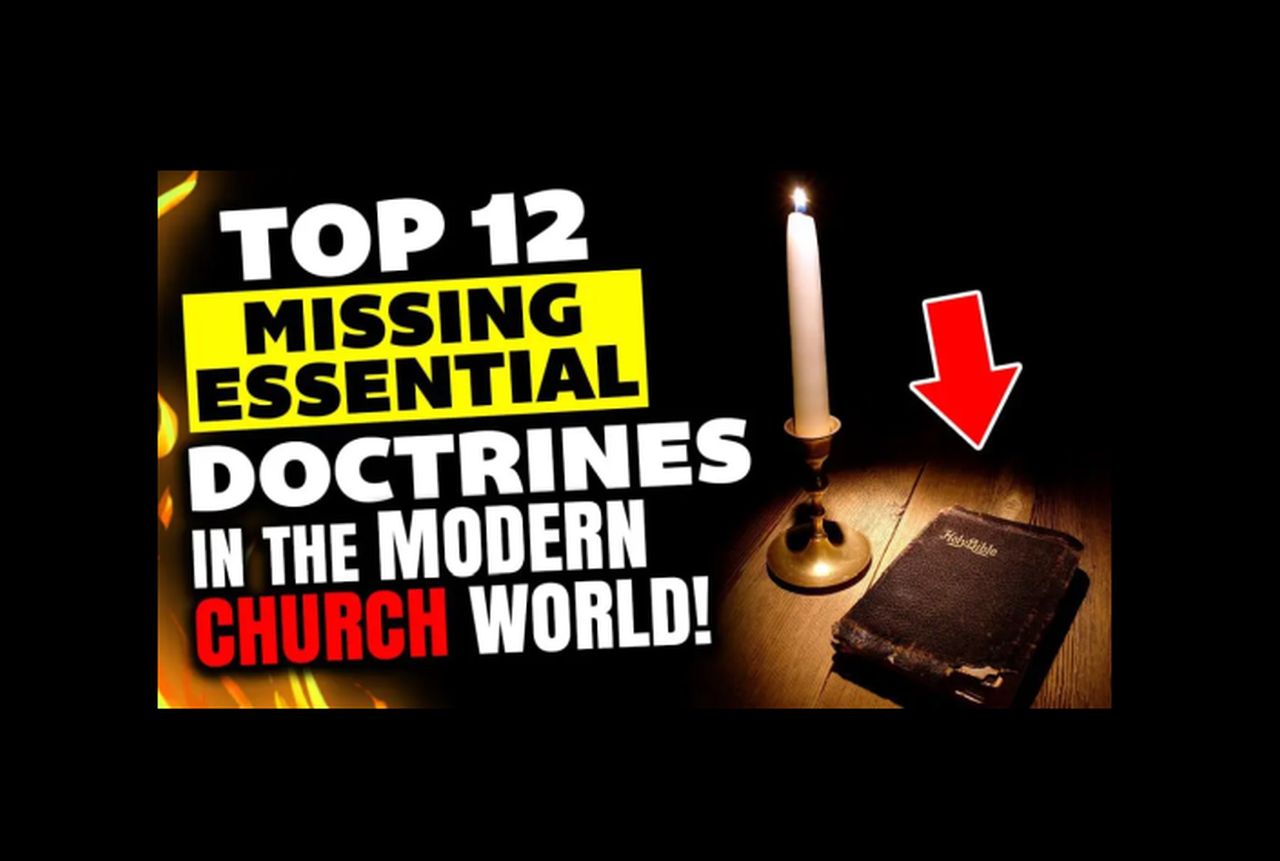
Antichrist
“Thine Enemies Roar in the Midst of Thy Congregations” [podcast]

Lucifer was cast down from Heaven and is now called Satan. He invaded the sinless pristine environment of the Garden of Eden. Check out Ezekiel 28:12-19. Read Psalm 74:4, 7. Satan infiltrates that which is ordained to be the place of the worship of God. He breathes his “strange fire” into those sanctuaries to destroy them.
Is the name of Jesus emphasized in your fellowship? Or has it been replaced with the worship of mere men?
“Neither is there salvation in any other: for there is NONE OTHER NAME under heaven given among men, whereby we must be saved.” Acts 4:12
“Which think to cause my people to forget my name BY THEIR DREAMS which they tell every man to his neighbour, as their fathers have forgotten my name for Baal.” Jeremiah 23:27

Fascinating Details Revealed about Lucifer in Eternity Past
Is it any wonder that Satan seeks to infiltrate and subvert the worship of the Most High? As we know he was “in Eden the garden of God.” Here in Ezekiel 28, we see the law of double reference where this applies to and speaks of the king of Tyrus and also Lucifer:
“Son of man, take up a lamentation upon the king of Tyrus, and say unto him, Thus saith the Lord GOD; Thou sealest up the sum, full of wisdom, and perfect in beauty. 13 Thou hast been in Eden the garden of God; every precious stone was thy covering, the sardius, topaz, and the diamond, the beryl, the onyx, and the jasper, the sapphire, the emerald, and the carbuncle, and gold: the workmanship of thy tabrets and of thy pipes was prepared in thee in the day that thou wast created. 14 Thou art the anointed cherub that covereth; and I have set thee so: thou wast upon the holy mountain of God; thou hast walked up and down in the midst of the stones of fire. 15 Thou wast perfect in thy ways from the day that thou wast created, till iniquity was found in thee. 16 By the multitude of thy merchandise they have filled the midst of thee with violence, and thou hast sinned: therefore I will cast thee as profane out of the mountain of God: and I will destroy thee, O covering cherub, from the midst of the stones of fire. 17 Thine heart was lifted up because of thy beauty, thou hast corrupted thy wisdom by reason of thy brightness: I will cast thee to the ground, I will lay thee before kings, that they may behold thee. 18 Thou hast defiled thy sanctuaries by the multitude of thine iniquities, by the iniquity of thy traffick; therefore will I bring forth a fire from the midst of thee, it shall devour thee, and I will bring thee to ashes upon the earth in the sight of all them that behold thee. 19 All they that know thee among the people shall be astonished at thee: thou shalt be a terror, and never shalt thou be any more.” Ezekiel 28:12-19
Adam Clarke writes:
“Jeremiah 23:27
By their dreams – Dreams were anciently reputed as a species of inspiration; see Num_12:6; 1Sa_28:6; Joe_3:1; Dan_7:1. In the Book of Genesis we find many examples; and although many mistook the workings of their own vain imaginations in sleep for revelations from God, yet he has often revealed himself in this way: but such dreams were easily distinguished from the others. They were always such as had no connection with the gratification of the flesh; they were such as contained warnings against sin, and excitements to holiness; they were always consecutive – well connected, with a proper beginning and ending; such as possessed the intellect more than the imagination. Of such dreams the Lord says, (Jer_23:28): The prophet that hath a dream, let him tell a dream – permit him to show what he has thus received from the Lord: but let him tell it as a dream, and speak my word faithfully, lest he may have been deceived.”
Of Jeremiah 23:27-29 Believer’s Bible Commentary notes:
“23:23-29 The omnipresent and omniscient God exposes the prophets for their dreams, which led people into idolatry. Their dreams were chaff compared to God’s word, which is like nutritious wheat, and also like fire and . . . a hammer.”
As seen here in Jeremiah 23, dreams are one way false prophets get His people to forget Him, His holy name.
As an earthly father or mother, picture some other man or woman seeking to draw your child away from you, to intercept and usurp the affections of your child’s heart which belong to you, the parent and no one else.
Do we begin to see why God’s very name is Jealous?
“For thou shalt worship no other god: for the LORD, whose name is Jealous, is a jealous God:” Exodus 34:14
In Psalm 74, Satan and his human emmissaries are depicted in their evil endeavor to unseat God’s people from their pure worship of Him and therefore leading them to enter into sinful, damning idolatry – the worship of another god. See the first and second commandments in Exodus 20.
“Thine enemies roar in the midst of thy congregations; they set up their ensigns for signs.” Psalms 74:4
“Ensigns” here means flags, monuments. We’ve all seen the monument of the Marines raising the American flag at Iwo Jima Japan after having through much bloodshed, conquered that plot of land. It marked a great victory and turn in that war.
Are you beginning to see a picture form?
Whenever an opposing army conquers that which belongs to their enemy, they plant their flag as a monument, a marker to their now conquering, possessing, and having reign over what was their enemy’s territory, domain.
While the enemy of our souls seeks to displace our flag, our banner, our pure allegiance to Christ, we must plant the banner, flagpole of our unadulterated allegiance, fidelity, and loyalty to Him.
“But God forbid that I should glory, save in the cross of our Lord Jesus Christ, by whom the world is crucified unto me, and I unto the world.” Galatians 6:14
“Jesus must be our all in all! Your first love! ‘Thou shall love the Lord thy God with all thy heart, and with all thy soul, and with all thy mind’.” Matt 22: 37-40.” Karen Cochran
Daily, I must ask and ascertain what my true identity is!
“For I determined not to know any thing among you, save Jesus Christ, and him crucified.” 1 Corinthians 2:2
The enemy of God who is Satan and his human agents, seek to infiltrate and bring the “strange fire” of their false teachings and un-biblical practices in the midst of what is supposed to be the pure worship of the LORD (Leviticus 10:1-3). Isn’t this exactly what Jesus violently rebuked and destroyed when He cleansed the temple of the greed-driven, covetous money changers who had made the place of worship into a den of thieves to rob the LORD of His glory and the people of their blessing to worship Him? Read Matthew 21 and John 2.
When the Communists (Satanic form of government) come in and begin taking over another country, they remove and replace the leadership and remove the historical landmarks that remind the people of what made their country great. As all can plainly see, as an example of this warfare strategy, that men who were more noble have been replaced by wicked men and women who obey unlawful, evil orders. Communists control and change the food supply to the people (natural food and spiritual food). They change the constitution, the rule of law of that nation they are infiltrating and taking over. In the same way, Satan seeks to replace those who faithfully feed the flock of God with hireling wolves in sheep’s clothing (Matthew 7:15). The enemy seeks to rob, to steal, kill, and destroy that spiritual food which feeds the faith of the remnant elect of God. So he changes the Word of God, the Constitution of Christ’s kingdom. This is why he has changed the Bible, the words of God, and has removed the Holy Bible (KJB) from front and center of our gatherings.
“And the burden of the LORD shall ye mention no more: for every man’s word shall be his burden; for ye have perverted the words of the living God, of the LORD of hosts our God.” Jeremiah 23:36
“And they continued stedfastly in THE APOSTLES’ DOCTRINE (Word) and fellowship, and in breaking of bread, and in prayers.” Acts 2:42
When God’s people don’t “continue(d) stedfastly in the apostles’ doctrine” they will famish and perish.
“Let the word of Christ dwell in you richly in all wisdom; teaching and admonishing one another in psalms and hymns and spiritual songs, singing with grace in your hearts to the Lord.” Colossians 3:16
Of this intriguing psalm, one writer notes:
“Psalm 74—If You Choose To Let It In, You Have To Let It Stay – The enemy cried ‘Victory’ in the midst of a place that evil should never have touched.”
“Keep thy heart with all diligence; for out of it are the issues of life.” Proverbs 4:23
Do we have a pure or an adulterous heart? Is Jesus truly our “first love”? See Revelation 2:4-5.
You and I are in a battle for our eternal souls. Nothing could be more serious or consequential. Following Christ in the crucified life is essential to victory.
“And from the days of John the Baptist until now the kingdom of heaven suffereth violence, and the violent take it by force.” Matthew 11:12
“Confirming the souls of the disciples, and exhorting them to continue in the faith, and that we must through much tribulation enter into the kingdom of God.” Acts 14:22
“Be sober, be vigilant; because your adversary the devil, as a roaring lion, walketh about, seeking whom he may devour.” 1 Peter 5:8
“Thou therefore endure hardness, as a good soldier of Jesus Christ. 4 No man that warreth entangleth himself with the affairs of this life; that he may please him who hath chosen him to be a soldier.” 2 Timothy 2:3-4
“Not Holding the HEAD” = Not upholding Christ.
“In whom are hid all the treasures of wisdom and knowledge. 4 And this I say, lest any man should beguile you with enticing words. 5 For though I be absent in the flesh, yet am I with you in the spirit, joying and beholding your order, and the stedfastness of your faith in Christ. 6 As ye have therefore received Christ Jesus the Lord, so walk ye in him: 7 Rooted and built up in him, and stablished in the faith, as ye have been taught, abounding therein with thanksgiving. 8 Beware lest any man spoil you through philosophy and vain deceit, after the tradition of men, after the rudiments of the world, and not after Christ. 9 For in him dwelleth all the fulness of the Godhead bodily. 10 And ye are complete in him, which is the head of all principality and power: 11 In whom also ye are circumcised with the circumcision made without hands, in putting off the body of the sins of the flesh by the circumcision of Christ: 12 Buried with him in baptism, wherein also ye are risen with him through the faith of the operation of God, who hath raised him from the dead. 13 And you, being dead in your sins and the uncircumcision of your flesh, hath he quickened together with him, having forgiven you all trespasses; 14 Blotting out the handwriting of ordinances that was against us, which was contrary to us, and took it out of the way, nailing it to his cross; 15 And having spoiled principalities and powers, he made a shew of them openly, triumphing over them in it. 16 Let no man therefore judge you in meat, or in drink, or in respect of an holyday, or of the new moon, or of the sabbath days: 17 Which are a shadow of things to come; but the body is of Christ. 18 Let no man beguile you of your reward in a voluntary humility and worshipping of angels, intruding into those things which he hath not seen, vainly puffed up by his fleshly mind, 19 And not holding the Head, from which all the body by joints and bands having nourishment ministered, and knit together, increaseth with the increase of God.” Colossians 2:3-19
At the root of this Bible message exposing the works of Satan, is “the spirit of antichrist” which is come to subvert, to intercept the pure worship of Christ, the only “HEAD” of the body He purchased with His precious blood on that cross (John 19:30; 1 John 4:1-4). Anti in the biblical word “antichrist” means in place of. Now reflect upon how Satan comes into the midst of where God is supposed to be worshiped and puts something, anything in place of Christ. There my friend, is the work of “many antichrists” at work in the modern church world. And note that the Bible informs us that there are “many antichrists” (1 John 2:18).
The devil has stolen the holy fire and the Word of God. What has such produced?
CAN anyone show us a good church member who is actually devouring, memorizing, and meditating on God’s Word daily and evangelizing the lost? I doubt it.
What does this reveal?
Just what kind of fruit is this?
Bad fruit.
“Jesus answered them, and said, My doctrine is not mine, but his that sent me.” John 7:16, 20
Read Psalms 74 each morning this week. Your understanding will be greatly increased concerning the tactics of the enemy.
PRAYER: Father in Jesus’ name, please unite my heart to fear Thy name. Circumcize my wicked heart. Separate, remove all evil, every trace of it from this life You gave. I am not my own but Yours, bought with a price. I am Your vessel, a temple of Your Holy Spirit. Please purify my heart dear LORD. Like Your servant Isaiah, I am a man of unclean lips and life. Wash me afresh with Thy precious blood dear LORD Jesus. From this moment forward, I am all Yours. Please use me mightilly, bearing much fruit for Your eternal glory. In the name of Jesus, amen.
Support | STORE | Podcasts | The Bridegroom is Calling His Bride | Purifying Ourselves as He is Pure [podcast] | 10 Clues Your Love for God is Waxing Cold [podcast]


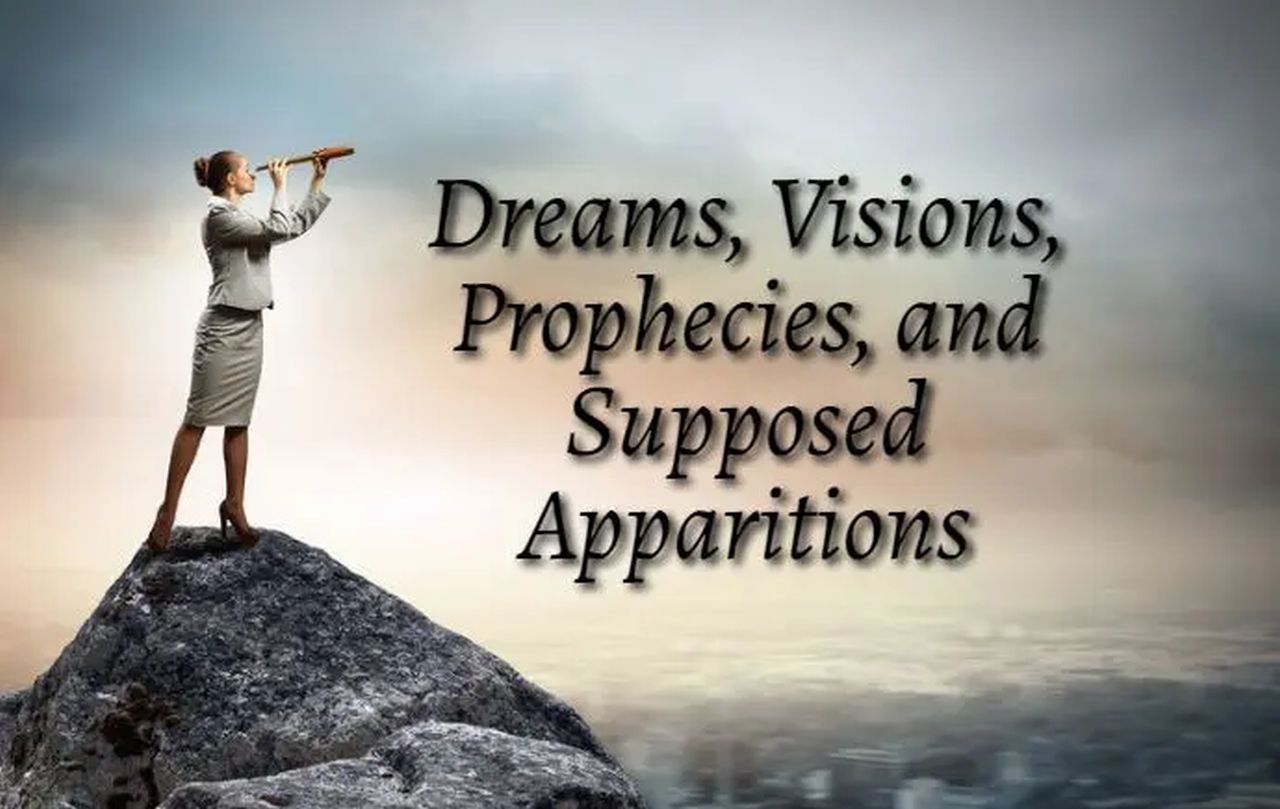

Apostasy
Biblical Case Against Seminary [podcast]
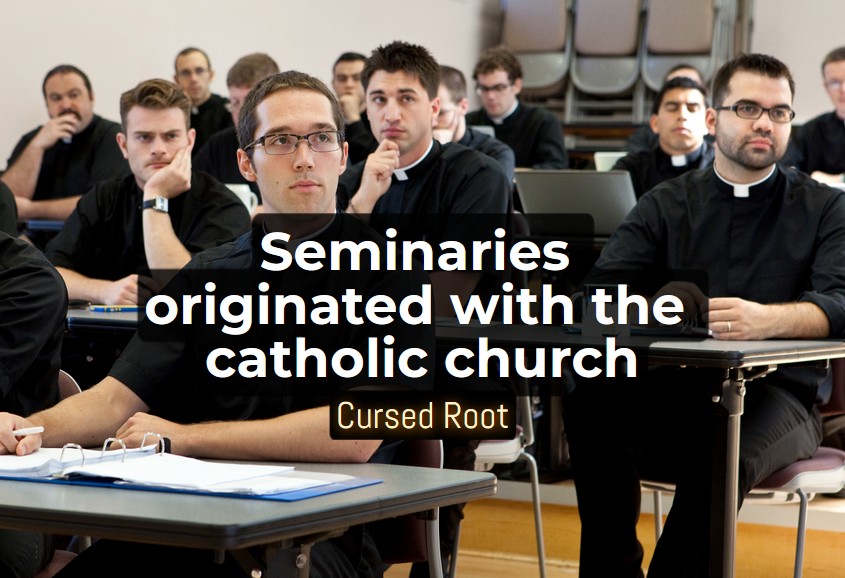
SATAN’S SEMINARIANS [podcast]
Satanic Seminarian System
People have to be first indoctrinated in order to go forth and indoctrinate others, their prey. This is the purpose of seminarians.
What could possibly sound more innocent than a man wanting to serve God going to seminary, right?
BEWARE OF THE SEMINARIANS WHO ARE THE SCRIBES AND PHARISEES OF OUR DAY! Satan loves to use that which sounds noble and spiritual and yet is not biblical. There are no seminaries in the New Testament! And it’s not biblical for a good reason. God’s Divine wisdom. To protect His body. Let’s stay with the Word saints!
SOME of the most pitiful deceivers I’ve ever conversed with have had a so-called “higher education.” In reality, there’s no such thing as a “higher education” outside of learning directly from the Most High Himself, out of the never-changing, crowning jewel literary work in His universe, the Holy Bible (2 Timothy 3:16-17).
HAVE you noticed the lightweight seminarians who peddle their half-truth false gospel, OSAS, calvinism, etc and how they market their community to build their church busine$$?
We should note that in general Christ warned us to “beware of men.” (Matthew 10:17) Jesus told us to beware of specific classes of sinful men. In doing so perhaps to some degree the Son of God was stereotyping. Here Jesus warns us to beware of the religious leaders (seminarians) and civil rulers and perhaps because they could do the most damage: “And he charged them, saying, Take heed, beware of the leaven of the Pharisees, and of the leaven of Herod.” (Mark 8:15)
The moment Jesus saved us, He inducted us into the school of the Holy Ghost and Word of God! THAT’S how God prepares His people for ministry! Seminary is a cheap substitute, waste of time and money (Psalms 119:105; Acts 1:8; 2 Timothy 2:15, etc.). Christ sends men to the cross and Pentecost (Holy Spirit baptism) and never to the seminaries of mere sinful men.
Who needs a seminary to learn God’s Word? – only a lazy man who refuses to lay down his life in this fleeting world and study to learn God’s Word intimately. Such a man is “not valiant for the truth” and so will be turned over to “strong delusion.” (Jeremiah 9:3; 2 Thessalonians 2:9-12)
“We have also a more sure word of prophecy; whereunto ye do well that ye take heed, as unto a light that shineth in a dark place, until the day dawn, and the day star arise in your hearts: 20 Knowing this first, that no prophecy of the scripture is of any private interpretation. 21 For the prophecy came not in old time by the will of man: but holy men of God spake as they were moved by the Holy Ghost.” 2 Peter 1:19-21
Personally, I waste no time on early church fathers or church history. They weren’t ordained, sanctioned by God exclusively to pen the words of Holy Writ, the Bible, which is God’s Word and the highest divine authority (2 Peter 1:19-21; 2 Timothy 2:15; 3:16-17). What’s it matter if you know what they said? The LORD didn’t ordain them to communicate His truth to the world. This does nothing but create confusion (1 Corinthians 14:33). Many would rather listen to what mere men had to say about God and the Bible than to search, study, and learn for themselves what God said in His own Word. The LORD has always instructed His people to study and learn and attend to HIS words (Deuteronomy 4, 6, 11, Isaiah 34:16, etc.).
“Study to shew thyself approved unto God, a workman that needeth not to be ashamed, rightly dividing the word of truth.” 2 Timothy 2:15
Seminarian Repentance
Attention seminarian or Bible College student, graduate: Not only does seminary not prepare you to be used of God, it gives you many things to unlearn and costs you much more than just a lot of wasted money. The ONE who saved you (if you are in fact saved) is the only ONE who can sanctify and prepare you to serve HIM. Seminary is at its root, apostasy, a departing from God to mere sinful men. If you claim to be born again and yet run to men to prepare you, there should be great concern (Galatians 1:16-17). PLAIN PROOF: Today’s apostate modern so-called “churches” become as they are – ichabod – by way of the jesuit-trained seminarian hirelings who drove them headlong into that apostasy. Seminiarian Apostasy Busted and Exposed!
ONLY JESUS can call, prepare and ordain a man to His work! All other “ordinations” and certifications are a fraud! John 15:16 !!!
There were no seminarians in the New Testament except those of the hell bound pharisees.
GOD is unchanging. Jesus sent no one to seminary. Jesus sends men to the cross then Pentecost! Otherwise a man is not fit for ministry. Seminary does not qualify a man for ministry. No, in fact, seminary puts a man light years behind, having many things he must now denounce and overcome and rid his life of. Repent and denounce all your “higher learning.” Until then, you are on your own, full of foolish pride and rebellion and the LORD will not use you (James 4:6-10). Paul denounced his “higher learning” trophies to know, be known of, and used by the LORD! (Philippians 3).
“Despite God’s word commanding men not to boast in their wisdom, and despite being told that “not many wise according to the flesh” are called, today’s evangelical landscape is replete with scribes and pharisees whose default question is, ‘By what authority do you do these things?’ They put their stock in how many credit hours they have obtained at such and such a seminary. Seminary credentials never qualified a man for God’s service, nor does a lack of “formal training” nullify what God approves. Indeed, God has chosen the foolish things of this world to confound the wise (1 Corinthians 1:27) When God calls anyone to a particular task, it matters not if others approve.” Servus Christi
DOES this not sum up what ministry is? Read closely: “For Ezra had prepared his heart to seek the law of the LORD, and to do it, and to teach in Israel statutes and judgments.” (Ezra 7:10)
We must go back further than the “reformation.” Nothing needed to be RE-formed…. because we have a Bible which is the final divine authority (Mark 13:31; 2 Timothy 3:15-17; 2 Peter 1:19-21, etc.). Many of the “reformers” were absolute heretics such as the demon possessed murderous maniac, John Calvin.
YOU see, in seminaries, their premise for teaching church history and about the reformers/reformation is so that their students will be able to discuss such when the topic comes up. But wait, you see THEY, the false priesthood of seminarians are the very ones who created that premise! Called out men must know God’s Word, not church history! SATAN is at work misdirecting men from simply learning God’s Word and walking in the power of the Holy Spirit. So, he’s diverted seminarians from simply learning Scripture using a curriculum that includes pagan prayer practices (contemplative prayer/spiritual formation), church history, and marketing. Jesus never did nor ever will send anyone to a seminary! The Son of God sends men who are truly in His will to the cross and to Pentecost!
Jim Borge writes: “As a young man, I was taught to believe that the Reformation was a great thing. As an older man I have grown to believe that the Church never needed reformation, it needed regeneration.”
IF you went to seminary or Bible college, perhaps the LORD would today lead you to repent of this work of the flesh, denounce it, and announce you utter dependence upon Him! Paul denounced all of his higher education to know and serve Christ (Philippians 3).
Sadly, most seminarians learn the lies of the protestant reformers instead of learning God’s pure Word!
The idea of “reformation” is just another lie and deception. Caution: Paul Washer is a calvinist … we don’t need “reformation” … never did! We need to simply get back to the “old paths” which is the Holy Scriptures! (Jeremiah 6:16) The LORD has given us “ALL things” in His Word! (2 Peter 1:3-4) The insidious, lying idea of a “reformation” is that something needs to be re-formed or formed again! But this is another lie from Satan because God’s Word has been perfect from the beginning and has “all” that we need! Beware. The “Protestant Reformation” was full of devils who believed and taught “reformed theology” and the diabolical system of “calvinism.” Run!
Bottom line: EVERYTHING we need God gave us in His Word and it doesn’t seminary to study and learn God’s Word!
Satan’s seminarians are his invention to put the church on ice!
Thinking of going to seminary? Before you do, read this post.
“What one generation tolerates, the next generation will embrace.” John Wesley
YOU show me a church “pastored” by one of Satan’s seminarians and I will show you a cold, dead, apostate sham!
Today the embrace, connection, and fornication between seminaries and the churches is an embracing of that which was tolerated in generations past and has brought epidemic apostasy in the local churches. The Methodist church is a prime example.
John Wesley was the founder of the Methodist church which is now a dead denomination and has been for a long time. Yet, Wesley was a firebrand for Christ who traveled over 150,000 miles by horseback to spread the Gospel of Jesus Christ. He preached over 40,000 messages from God’s Word in his lifetime!
It was only when the Methodist church began requiring it’s preachers to have a seminary degree that the fire of God extinguished (Ichabod) and the Holy Spirit was quenched. Today the Methodist church is dead men’s bones due to trusting in the flesh, degrees, etc., and not desiring and depending on the divine power of the Word and Holy Spirit.
SATAN HAD A PLAN TO ICE THE FIRE OF THE HOLY SPIRIT IN THE CHURCHES AND IT WORKED – AS FAR AS THE VISIBLE BUILDING-BASED CHURCHES GO.
Simple Scheme: If Satan can ice the seminarians, he ices the people they speak to.
The seminary church system has never nor ever will work to fulfill God’s stated will for His New Testament church. It’s a satanic fraud and counterfeit that has replaced the stated will of the LORD! “Antichrist” means simply “in place of.”
The Pharisees
The hell bound hypocritical pharisees were the seminarians of Christ’s day (Matthew 23).
EVERY catholic priest is seminary trained. What does that tell you?
Calvinistic wolves posing as pastors are seminarian graduates.
What does that tell you? Jude 3-4
Today they control nearly all building based churches.
But wait, don’t men who servant lead need to know the Word? Yes, but that in no way necessitates a “higher learning” center where mere men are in control and inevitably will contaminate.
MESSAGE RECEIVED:
“It does take a little training to rightly divide the Word. Of Truth.”
REPLY:
Yes it sure does …. no seminarian needed which without fail indoctrinates it’s students with extra-biblical heresies no different than the training received by the pharisees/false leaders/seminarians of Christ’s day (Mark 7:6-9).
ORGANIC, HOME BIBLE FELLOWSHIPS IS THE WAY THE EARLY CHURCH BEGAN AND SHOULD BE FUNCTIONING TODAY (ACTS 2:42-47).
Beware of the Seminary Salesmen!
Interestingly, when one searches the internet concerning the case for or against seminary training, he may just find this to be the only piece written from a biblical perspective and against seminary training. In perusing some of the many pro-seminary articles, one will search in vain to find much, if any Scripture. These pro-seminary sales pieces were apparently written by seminarians – using little or no Scripture. One thing is for certain: Jesus and His apostles never once instructed anyone to go to a higher learning facility.
TRULY REPENTING, surrendering your whole being, reputation, and will to Christ, getting baptized with the Holy Ghost, and organically studying God’s Word is the divine equipment for ministry, not seminary!
GOD NEVER CALLED ANYONE TO GET A SEMINARY DEGREE. IF SO JESUS WOULD HAVE TOLD HIS 12 TO GO TO A “HIGHER LEARNING” INSTITUTION. NO, JESUS CALLED HIS 12 AND IS CALLING US TO DIE – TO DENY SELF, TAKE UP THE CROSS, AND FOLLOW HIM! LET’S REPENT SAINTS, THAT’S WHERE IT ALL STARTS, BEGINNING WITH A DIVINE REFRESHING IN OUR SPIRITS! (ACTS 3:19)
Paul had more “higher learning” than 10 seminarians combined and he denounced it all as “dung” (crap) to know and to learn and to teach Christ! Study Philippians 3 afresh.
Jesus led Paul to denounce all of his higher learning – read Philippians 3 afresh with this in mind … he counted it dung … when I did this – denounced my formal education – the LORD delivered me and there was an increased anointing …. only Jesus can ordain us and anoint us to do HIS work – “Ye have not chosen me, but I have chosen you, and ordained you, that ye should go and bring forth fruit, and that your fruit should remain: that whatsoever ye shall ask of the Father in my name, he may give it you.” John 15:16
THE FRUIT OF THE MODERN CHURCHES IS CLEAR PROOF THAT SATAN IS AT THE ROOT OF THE SEMINARIANS WHO’VE DRIVEN THEM INTO APOSTASY!
Biblical Christian training does not involve organizations or institutions of sinful men – whose fruit reflects that of the sham false leaders of Christ’s day – who “love the praise of men more than the praise of God” (John 12:43) and set aside God’s Word to keep their own tradition (Mark 7:6-9). No institution of men needed for deep, thorough, organic, Spirit filled study of God’s Word. Jesus and His apostles never once instructed any person to go to a higher learning institution. In fact the seminarians of Christ’s day mocked the very Son of God specifically for not having a degree or the approval of sinful religious men (John 7:16-18).
“John 7:15 ‘How knoweth this man letters, having never learned?’ The Jews were amazed that Jesus had never formally trained in the Jewish law, had no degree, but had in-depth knowledge of the scriptures. But were did He get this knowledge? From His Father! Same as us!” Karen Cochran
To illustrate how indoctrinated seminarians become and why …. Have you ever noticed that when you see seminary students in coffee shops laboriously studying, you can spot them from a mile away – because they carry 3-10 commentary books of mere men around. That’s their curriculum instead of pure Scripture. Sometimes you can’t even find a Bible in the midst of their many books and when you do, it’s a lame, corrupted new per-version. SMH New Bible Versions and the Satanic Frauds who Invented them Busted and Exposed.
THERE’S A HUGE DIFFERENCE BETWEEN LEADING PEOPLE THROUGH SCRIPTURE AND INDOCTRINATING THEM IN EXTRA-BIBLICAL THEOLOGY SUCH AS THE DIABOLICAL SYSTEM OF CALVINISM/REFORMED THEOLOGY WHICH IS INTENTIONALLY DONE AT SEMINARIES.
One brother illustrates seminaries this way:
“Many colleges are just glorified roach motels…those who go in are infected and go back to infect the entire colony.” Nathan Noyes
JESUS told a seminarian of His day that he had to be “born again.” (John 3:3, 7) Obviously this man was not right with God. Nicodemus was a Pharisee and a member of the Sanhedrin mentioned in three places in the Gospel of John: He first visits Jesus one night to discuss Jesus’ teachings (John 3:1–21). Obviously Nicodemus was not a member of Christ’s family yet. This is clear, landmark proof that being religious and/or a leader in a religion or movement assures not that a person is truly a child of God. Hell is full of religious leaders, most of which are “false” according to Jesus (Matthew 7:15; 24:1,24; 1 John 4:1, etc.). The LORD never designed for His people to go to a school of “higher learning” but rather to receive the only Higher learning available – directly from the MOST HIGH Himself! Remember how the LORD told Ezekiel to simply eat His Word and then go speak those words? (Ezekiel 3)
The rebel at heart will do anything and everything except truly repent. He will mask his rebellion by spending several years and a small fortune to obtain a seminary degree, but like the hell bound false leaders of Jesus’ day, he will not repent.
“He answered and said unto them, Well hath Esaias prophesied of you hypocrites, as it is written, This people honoureth me with their lips, but their heart is far from me.” Mark 7:6
The profile of the seminarian is that he seeks the approval of sinful men and not God.
“And he said unto them, Ye are they which justify yourselves before men; but God knoweth your hearts: for that which is highly esteemed among men is abomination in the sight of God.” Luke 16:15
Sinful men always wants to insert themselves, legitimize and attempt to make prestigious their own personal certification and institutions where they reign and complicate the simplicity of divine truth and its instruction. Beware.
“Trust in the LORD with all thine heart; and lean not unto thine own understanding. 6 In all thy ways acknowledge him, and he shall direct thy paths. 7 Be not wise in thine own eyes: fear the LORD, and depart from evil.” Proverbs 3:5-7
Seminary will never make up for your refusal to authentically repent and get a real life with Christ! John 15:16
Personally, upon having attended 2 Bible colleges, I realized that many of the student, even those in their 4th year, were admittedly not born again. The fruit was obviousl
THERE was no such thing as a priesthood of professional clergy in Christ’s day or in the days of early church! (as far as HIS true kingdom is concerned) In fact, it wasn’t until the antichrist roman catholic cult formed that such a priesthood was instituted and has brought untold destruction since! In short, they’ve replaced the pure worship of Christ with everything under the sun! Jesus saw this coming and prophetically warned us about this when He said “Beware of false prophets, which come to you in sheep’s clothing, but inwardly they are ravening wolves.” (Matthew 7:15) Oh and “And many false prophets shall rise, and shall deceive many.”(Matthew 24:11) ….. Do you understand the import of Ezekiel 22:25-27? Here it is:
“There is a conspiracy of her prophets (false leaders) in the midst thereof, like a roaring lion ravening the prey; they have devoured souls; they have taken the treasure and precious things; they have made her many widows in the midst thereof. 26 Her priests (leaders) have violated my law (Word), and have profaned mine holy things: they have put no difference between the holy and profane, neither have they shewed difference between the unclean and the clean, and have hid their eyes from my sabbaths, and I am profaned among them. 27 Her princes in the midst thereof are like wolves ravening the prey, to shed blood, and to destroy souls, to get dishonest gain.” Ezekiel 22:25-27
The seminary system we see since the early New Testament centuries into the now is a clear manifestation and fulfillment of this prophecy given us by the LORD’s prophet Ezekiel. Exactly as Ezekiel warned, today there is a “conspiracy” among the fraternal order of seminarians who have a stronghold on the denominational franchises they run. Also as the prophet revealed “Her priests (leaders) have violated my law (Word).” (v26) The false prophet seminarians are man-fearing, man-pleasing hirelings who refuse to acknowledge, study, and preach the whole counsel of God’s Word (2 Timothy 4:1-4). Like the phony false priesthood of Christ’s day, they set aside the Word of God in order to keep the tradition and heresies they learned in seminary (Mark 7:6-9). In fact, this is a central biblical definition of false leaders and what they do – and we “know (discern) them by their fruit.” (Matthew 7:16, 20)
“He answered and said unto them, Well hath Esaias prophesied of you hypocrites, as it is written, This people honoureth me with their lips, but their heart is far from me. 7 Howbeit in vain do they worship me, teaching for doctrines the commandments of men. 8 For laying aside (rejecting) the commandment (Word) of God, ye hold the tradition of men, as the washing of pots and cups: and many other such like things ye do. 9 And he said unto them, Full well ye reject the commandment (Word) of God, that ye may keep your own tradition.” Mark 7:6-9
Satan’s Centralized System
We know from the revelation of Scripture that Satan has a well organized kingdom and uses his human agents and their systems to steal, to kill, and to destroy souls (Ezekiel 22:25-27; John 10:10; Ephesians 6:12).
Seminaries are a centralized organization of mere sinful men. SATAN is the centralizer! Think Babylon/Nimrod (Genesis 11). Think the upcoming centralized antichrist system (Revelation 13-14, 17-18). Yes, it’s God who has ordained that His assemblies of His people be autonomous and not controlled by a “headquarter” committee or centralized organization of modern pharisees who in most cases are indoctrinated into extra-biblical doctrines such as the cult of calvinism. Most pastors today are wolves who can’t even lead souls to Christ and deny the need for the baptism of the Holy Spirit (for starters). Satan always, without fail, perverts the men in control and then doles it out to those downstream (the churches). That’s why he centralizes and we are “not ignorant of his devices.” (2 Corinthians 2:11)
The Bible itself is the learning source for every saint. God’s Word is His centralized truth! (John 17:17; 2 timothy 3:16-17)
It’s real simple:
- Are you genuinely born again?
- Can you read?
- Do you have a King James Bible?
Case closed: You do not need to go to seminary. If you do, like the majority of seminarians, you may never return to the LORD to be used of Him and worse.
In the early church there were no professional clergymen as we see today in the apostate modern church world. This was Satan’s plan to denigrate and cease the power of the Holy Spirit which was poured out from Jesus on Pentecost and resulted in thousands being saved. Read Acts. At the hands of seminarian wolves, the modern church world is full of entertainment, marketing, and gimmicks and is plainly lukewarm and dead (Revelation 3:15-16). New Testament elders are not seen in the 27 book New Testament canon as those today who lord it over that which claims to be Christ’s flock. No, rather, elders in the early church were those who navigate and feed oversee (1 Peter 5:1-6). They were more like those who moderate the assemblies of God’s people in contrast with the seminary-trained, hi-jack artists we see in place today.
Seminaries are Wolf Factories! Beware!
“Many pastors have destroyed my vineyard, they have trodden my portion under foot, they have made my pleasant portion a desolate wilderness.” Jeremiah 12:10
Nancy Paul Cote writes: “Thanks again for your ministry’s articles. They so hit home and relate to my experiences of error. We were just talking about this in my new Berean Church yesterday. Both my husband and I can attest to this. Both of us were on fire for God and studied the word of God with our church ministries. We started out with an un-compromised Bible (KJB). Then, we listened to many say that to further our education with God we must go to a Bible College to get a degree to be more equipped for Ministry. Well, as we attended Bible College for 4 years I did not see our passion for biblical Truth growing—but declining. There were so many different views and different Bible Versions it only made me less prepared and more confused. We began relying on what the teachers said rather than what the Bible said because we were sure they know more because they had a degree, right? No, it was almost like I had to detoxify myself of all of man’s wisdom and get back into my KJB and fellowship with those with like-minded passion. I did just that in 2014. God has been so good to me. ‘Who is a wise man and endued with knowledge among you? let him shew out of a good conversation his works with meekness of wisdom. But if ye have bitter envying and strife in your hearts, glory not, and lie not against the truth. This wisdom descendeth not from above, but is earthly, sensual, devilish. For where envying and strife is, there is confusion and every evil work. But the wisdom that is from above is first pure, then peaceable, gentle, and easy to be entreated, full of mercy and good fruits, without partiality, and without hypocrisy. And the fruit of righteousness is sown in peace of them that make peace’ (James 3:13-18).”
False leaders have been the demise and damnation of millions. Hell is full of false leaders and those who chose to follow these wolves in sheep’s clothing instead of Christ.
“For the leaders of this people cause them to err; and they that are led of them are destroyed (in hell).” Isaiah 9:16
Jesus never told you to go to seminary. Rather, He commanded you to lay down your life right now and follow Him. Now read these words from Jesus and see if you need seminary to understand this simple truth:
“If any man will come after me, let him deny himself, and take up his cross daily, and follow me. 24 For whosoever will save his life shall lose it: but whosoever will lose his life for my sake, the same shall save it.” Luke 9:23-24
Professional clergymen have hi-jacked and ruined the life of Christ from that which feigns to be representing Him. Most of them came from Satan’s seminaries!
Seminarian wolves have hi-jacked the local churches and that’s why true followers of Jesus are gathering organically – without the contamination of professional clergy wolves. Individual believers and true ministers of Christ who are not part of their fraternal, Jesuit-trained order are intentionally shunned in the apostate churches and yet are fulfilling their call like Jesus and His apostles – without a building to contain them from reaching the people.
NEWS FLASH: SATAN CONTROLS THE SEMINARIES, CHURCH SYSTEMS, AND LOCAL CHURCHES.
If your thought and perspective of serving God is the vision of a so-called church building, you do not have a kingdom perspective and are in desperate need of repentance, deep Bible study, and praying that the LORD opens your eyes.
When you truly realize that the MOST HIGH, the very KING of kings saves and ordains you – and you truly fear Him and not men – that will be the only ordination you ever mention or acknowledge! (John 15:16) Those to truly know the LORD and obviously fear Him, do not seek the approval of mere sinful men, especially the “accursed” who preach another gospel (Galatians 1:10). | Pastors According to My Heart (Jeremiah 3:15)
THE TRUE DISCIPLE OF JESUS WILL NOT BE SELF-MADE OR SEMINARY-MADE BUT RATHER SAVIOR-MADE! SELAH! SUCH A MAN DILIGENTLY AND DAILY SEEKS THE FACE OF THE LORD IN A LIFE OF PRAYER AND BIBLE STUDY! LIKE THE ONE HE IS TRULY FOLLOWING, HE SEEKS NO APPROVAL OF MEN.
God never sends any man to seminary. They are self-sent. Jesus says to follow Him: He had no degree and was mocked by the hypocritical religious leaders of His day (John 7:15-18). God has not changed. Those who truly know and follow Christ entered into the school of the Holy Ghost and Word of God the day He saved them!!!
ANY LOCAL CHURCH THAT SEARCHES FOR OR WOULD EVEN TAKE AS AN ELDER A SEMINARIAN WHO HAD NOT REPENTED AND DENOUNCED HIS PHONY SEMINARY DEGREE IS AN APOSTATE CHURCH! JOHN 15:16
In the qualifications for an elder among Christ’s body, can you find the need to be degreed?
Biblical Qualifications for Overseers
“This is a true saying, If a man desire the office of a bishop, he desireth a good work.
2 A bishop then must be blameless, the husband of one wife, vigilant, sober, of good behaviour, given to hospitality, apt to teach;
3 Not given to wine, no striker, not greedy of filthy lucre; but patient, not a brawler, not covetous;
4 One that ruleth well his own house, having his children in subjection with all gravity;
5 (For if a man know not how to rule his own house, how shall he take care of the church of God?)
6 Not a novice, lest being lifted up with pride he fall into the condemnation of the devil.
7 Moreover he must have a good report of them which are without; lest he fall into reproach and the snare of the devil.” 1 Timothy 3:1-7
THERE IS NOT ONE MENTION OF A HIGHER LEARNING DEGREE IN THE BIBLICAL LIST OF QUALIFICATIONS FOR AN ELDER. SUCH HAS BEEN ADDED BY MEN AND DEVILS.
The Son of God Didn’t have a Degree!
“And the Jews marvelled, saying, How knoweth this man letters (Jesus had no degree from sinful men), having never learned? (no formal education)
16 Jesus answered them, and said, My doctrine is not mine, but his that sent me.
17 If any man will do his will, he shall know of the doctrine, whether it be of God, or whether I speak of myself.
18 He that speaketh of himself seeketh his own glory: but he that seeketh his glory that sent him, the same is true, and no unrighteousness is in him.” John 7:15-18
On this passage, William MacDonald, author of the Believer’s Bible Commentary, notes:
“7:15 Those who heard the Savior marveled. Doubtless it was His knowledge of the OT (Scriptures) that impressed them most. But also the breadth of His learning and His ability to teach attracted their attention. They knew that Jesus had never been to any of the great religious schools of that day, and they could not understand how He could have such an education as He did. The world still expresses amazement and often complains when it finds believers with no formal religious training who are able to preach and teach the Word of God.
7:16 Once again it is beautiful to see how the Lord refused to take any credit for Himself, but simply tried to glorified His Father. Jesus answered simply that His teaching was not His own, but that it came from the One who sent Him. Whatever the Lord Jesus spoke and whatever He taught were the things which were the things His Father told Him to speak and to teach. He did not act independently of the Father.
7:17 If the Jews really wanted to know whether His message was true or not, it would be easy for them to find out. If anyone really wills to do God’s will, then God will reveal to him whether the teachings of Christ are divine or whether the Lord was simply teaching what He Himself wanted to teach. There is a wonderful promise here for everyone earnestly seeking the truth. If a person is sincere, and truly wants to know what is the truth, God will reveal it to him. “Obedience is the organ of spiritual knowledge.’”
7:18 Anyone who speaks from himself, that is, according to his own will, seeks his own glory. But it was not so with the Lord Jesus. He sought the glory of the Father who sent Him. Because His motives were absolutely pure, His message was absolutely true. No unrighteousness was in Him.
Jesus was the only One of whom such words could be spoken. Every other teacher has had some selfishness mixed in his service. It should be the ambition of every servant of the Lord to glorify God rather than self.”
Cross-Less Curriculums of Seminaries
“Enemies of the cross of Christ.” Philippians 3:18-19
CHRIST’S KING-DOM IS ALLLL ABOUT KING JESUS!!! AND NOT SOME CHUMP WHO’S BUILDING A CHURCH BUSINESS BY ENTERTAINING SELF-SEEKING GOATS WITH MUSIC AND TONED DOWN CLICHE’S, CATCHY PHRASES AND NEUTERED, “SUCCESS” MESSAGES.
“I once heard a wise old pastor say, ‘The best way to strip a man of his Christianity is to send him to Seminary.’” Gina Martin
“I have learned more from born again evangelists who never went to seminary, than those who did. They preach from the heart, keep the message plain and easy to understand, and know their Bible inside out!! More sacrilege and blasphemy has come from seminaries than I can count here. The Holy Spirit will God us in all we do, if we let Him.” Donna Hawthorne Riegler
Jeff Scholz writes: “God’s anointing is in His word. Even someone who is newly born again that barely reads the Bible, when they pick it up, even for the first time, as soon as they start reading God is already speaking to that individual. The LORD can call and use anybody at any time, any one of His people.”
Saints, the seminaries and their seminarian agents have created a stronghold over many parts of that which claims to be Christendom, smothering and snuffing out the life of Christ. Beware. Pray for understanding and insight and spread the light of truth on this darkness that has blanketed the minds of so many. These are the Nicolaitan devils, the very agents of Satan himself and their false systems and doctrines Jesus says He hates (Revelation 2:6, 15). Nicolaitan Devils Busted and Exposed!
Satan uses seminaries and seminarians in pulpits to produce these false leaders and to intercept and distort that innocence of the new believer who is a new creature in Christ by way of being now born again (2 Corinthians 5:17-18).
In the vast majority of local churches today, little emphasis is placed on the divine priorities of essential biblical truth such as the divinity and holiness of the LORD, the necessity of the daily cross and prayer, etc.
SEMINARIANS ARE TAUGHT TO READ WHAT OTHER MEN SAY ABOUT THE BIBLE INSTEAD OF SIMPLY STUDYING THE BIBLE FOR THEMSELVES. THEY ARE COMMENTARY INTENSIVE INSTEAD OF SCRIPTURE INTENSIVE!
I’ve been to two Bible colleges and many of those who attended (the students) were not even born again! Many of them openly and laughingly admitted to such!
Having a seminary degree means that someone has been taught well to not personally study and assimilate the whole counsel of God’s Word in an honest manner but rather to manipulate Scripture to teach and defile others which such diabolical systems of theology as calvinism and un-conditional eternal security. Calvinism is the Devil’s System and all who teach it are his wolves! Beware.
True servants of the LORD must be called and prepared by the LORD, not mere men who falsely feign to be Christ’s representatives. | Divine Preparation for Ministry
“Taught of God” …. (1 Thessalonians 4:9)
“The Holy Ghost teacheth”! 1 Corinthians 2:13
Seminary prepares no one for ministry – Only Jesus can do that in the life of the called-out, obedient men who choose to do things HIS way and not man’s way! “for many be called, but few chosen.” (Matthew 20:16)
SAVE YOUR MONEY AND TIME – GO TO THE SAVIOR, NOT SEMINARY!
If Jesus created, found, saved, and called you, can He not prepare you? (John 15:16)
Where is your faith? Is it in men or God? (Hebrews 11:6)
Some would argue that the world is more civilized now than it was 2,000 years ago when Christ came. Nonsense. They therefore argue that seminaries are a product of our enlightened age. Nonsense.
In the first century, we know of certainty that there was much emphasis placed upon the prestigious institutions of higher religious learning. This is further established by the mocking mention of Jesus not having a degree in John 7:15, and Paul’s credentials – being taught at “the feet of Gamaliel” and “an Hebrew of the Hebrews; as touching the law, a Pharisee.” (Acts 22:3; Philippians 3:5) Obviously there were great centers for religious learning, namely Jewish, in the days of our LORD and His apostles. Yet not only do we have not a single instance of Jesus or His apostles sending anyone to a higher learning center, the graduates of those institutions were actually the greatest persecutors of Christ and His apostles. They were antichrists. Nothing has changed! We have the same scenario transpiring all around us today in the professing church world.
There is no hate here toward men but rather the devil who has deceived men, leading them away from God while claiming to be representing Christ …. this subversion is characteristic of “the spirit of antichrist.”
The very reason we don’t have more intense and diligent Bible learning in the church world is due to seminarian leadership. Meditate on this. Seminary is like the catholic cult – designed by the enemy to keep people out of God’s Word for themselves.
The way “the spirit of antichrist” works…. is while feigning to be representing Christ, it misrepresents Christ. Subversive, insidious deception perpetrated against Christ and His people (2 Thessalonians 2:1-12; 1 John 4:3).
ANYONE WHO CRASSLY DISMISSES THE FACT THAT JESUS NEVER SENT ANYONE TO SEMINARY IS ALREADY OPERATING ON HUMAN WISDOM AND NOT GOD’S WISDOM AND IS DESTINED FOR A WASTED LIFE OF WOLFERY!
Seminaries train men to please men, not God. They train men to operate in devil-inspired and man-controlled churches which are apostate, Ichabod!
The Almighty is not impressed with a seminary degree and in fact cannot use you until you repent and denounce it and announce your full and complete dependence upon Him!
Seminaries create a type of brotherhood or fraternal order which causes the sin of respect of persons (Romans 2:11). In this God-less connection, there is respecter of persons which is a clear and sinful violation of God’s Word (James 2:9).
When some Jews got saved, Jesus told them to continue in the Word and as they did they would know His truth and be made free. Christ had all the opportunity in His Universe to direct these new believers to go to some higher learning institution that had set itself up. No such mention from the Son of God! Here it is:
“Then said Jesus to those Jews which believed on him, If ye continue in my word, then are ye my disciples indeed; 32 And ye shall know the truth, and the truth shall make you free.” John 8:31-32
Heaven’s King here taught these new believers that His truth – knowing and obeying it – would make them His disciples and make them free. Jesus clearly infers here that they could and would definitely know His truth if they “continued in” His “Word.”
To be Holy Ghost filled is very important per Scripture and yet not enough. You must have both the power and revelation of the Holy Spirit and astute adherence to the “sound doctrine” of Holy Scripture (2 Timothy 2:15; 3:15-17, etc.).
NO, YOU DON’T NEED SEMINARY, YOU NEED THE SAVIOR! MORE OF JESUS IS THE ANSWER AND PREREQUISITE FOR MINISTRY.
“Now when they saw the boldness of Peter and John, and perceived that they were unlearned and ignorant men, they marvelled; and they took knowledge of them, that they had been with Jesus.” Acts 4:13
Seminaries are an open pit, drawing men who were never called of God in the first place and intercepting, indoctrinating and destroying men who are actually God-called, making them “twofold more the child of hell than yourselves.” (Matthew 23:15).
Many who sign up for seminary see what they view as an easy profession. All they have to do is get the degree and they can send out resumes. Seminaries are a breeding ground for self glory which is completely contradictory to the teachings of Jesus.
Saints, this pride we see coming from people who claim to be Christian leaders because they attended a seminary is proof of the truth that seminaries do not prepare people to serve God, period. Many are full of self and may God grant repentance. See John 7:18 – “He that speaketh of himself seeketh his own glory: but he that seeketh his glory that sent him, the same is true, and no unrighteousness is in him.”
“Higher learning” is in reality indoctrination, brainwashing.
Is the world getting smarter or dumber? Want to get humbled and embarrassed? Look up the 8th grade primer from just 100 years ago here in America. Most college graduates couldn’t answer near half of those questions. Shocking dumb down! In the same way, preachers of old knew God’s Word and had mountains of Scripture from the King James Bible committed to memory.
EXAMPLE OF THE PROPHESIED GREAT FALLING AWAY / APOSTASY (2 THESSALONIANS 2: NOT 1 SEMINARY TODAY USES THE KING JAMES BIBLE WHICH IS THE PRESERVED WORD OF GOD TO THE ENGLISH SPEAKING PEOPLE OF THE WORLD (PSALMS 12:6-7).
Prayer of Repentance: Father, I here and now acknowledge You and how You alone made, saved, and called me for Your purposes. In the name of Jesus Christ, right this moment, I confess my sin of pride and self-idolatry and for not seeking Your face in this matter. I now see how I went my own way and not Yours. Please forgive me now LORD and instill thy holy fear in my bosom, leading me in Your paths to know and be prepared to be used of You. In Jesus’ name, amen!
Seminaries Slammed!| Today’s False Church System
Pastors | Prepared to be Used | Satan’s Seminaries | Support | STORE | Podcasts | Eternal Security/OSAS | Accounted Worthy to Escape [podcast] | Eternal Security Exposed | Sealed? | The Return of Christ | Lie of the Ages [podcast] | 10 Questions about Eternal Security | Is Salvation Eternal? | The Damning Myth of Unconditional Eternal Security [podcast] | The Essential of Fearing God | The KING is Coming [podcast]


Abiding
The Curse of a Divided Heart and Blessing of a Whole Heart! [podcast]
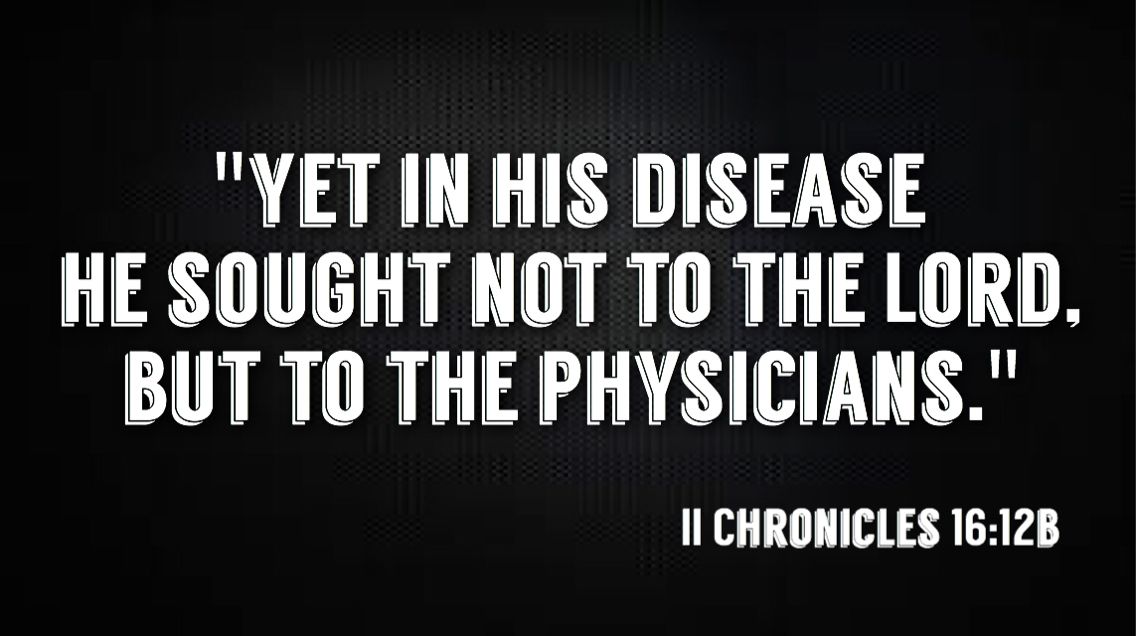
Israel’s heart was divided. The solution.
“Their heart is divided; now shall they be found faulty: he shall break down their altars, he shall spoil their images … 12 Sow to yourselves in righteousness, reap in mercy; break up your fallow ground: for it is time to seek the LORD, till he come and rain righteousness upon you.” Hosea 10:2, 12
King Asa: Tragic end of an otherwise obedient, fruitful, God-glorifying life….
Are you blessed or cursed?
“Thus saith the LORD; Cursed be the man that trusteth in man, and maketh flesh his arm, and whose heart departeth from the LORD.” Jeremiah 17:5
King Asa trusted the physicians and not the LORD and he paid dearly.
“And Asa in the thirty and ninth year of his reign was diseased in his feet, until his disease was exceeding great: yet in his disease he sought not to the LORD, but to the physicians.” 2 Chronicles 16:12
Feet speak of foundation. Without feet, physically we cannot stand. Without a sound foundation of truth, of God’s Word in our lives, we shall not stand. Read Matthew 7:19-29.
One writes notes the following about the meaning of feet in God’s Word:
“Why Are Feet Important in the Bible? Just as men and women stand upon their feet as the foundation of upright posture, Bible verses also use feet as a euphemism to represent a strong foundation in various circumstances. Feet are not referenced as we see them today, but they are used as symbols to represent greater metaphorical concepts, such as guidance or direction.
The feet represented something that was common to all people but used differently. For example, one of the most noted scripture texts involving feet is Psalm 119:105, ‘Thy word is a lamp unto my feet, and a light unto my path.’ This emphasizes how the feet are used to travel and traverse. Yet, without the word, the traveler is left walking in the dark without a known path.
Essentially, the feet are referenced as a critical part of life as walking was commonplace. We naturally travel where our feet lead us and the Bible verses use feet to represent a means of traveling through life itself. If we walk down a dark path, we are likely to stumble. If we walk down a holy path, we are sure to please God. All of this is facilitated symbolically by the feet.”
The foundation truth we learn in God’s Word and obedience to it determines the direction of our lives.
“As ye have therefore received Christ Jesus the Lord, so walk ye in him: 7 Rooted and built up in him, and stablished in the faith, as ye have been taught, abounding therein with thanksgiving.” Colossians 2:6-7
Becoming Rooted and Grounded in Christ
Like Asa, many today trust the counsel of mere men, such as doctors and not God. This doesn’t mean going to a doctor is a sin and yet, the true disciple will primarily trust and obey and be led of the LORD, not men.
“But without faith it is impossible to please him: for he that cometh to God must believe that he is, and that he is a rewarder of them that diligently seek him.” Hebrews 11:6
Read Hebrews 3-4 prayerfully for the eternal danger of having “an evil heart of unbelief” AFTER being saved. Repentance required.
“They speak vanity every one with his neighbour: with flattering lips and with a double heart do they speak.” Psalms 12:2
Got depression? Are you seeking the LORD in true repentance whereby He will grant you great joy? (Psalms 51; 2 Timothy 1:7) Or, are you seeking out and trusting the mere human, the finite pundits of this fleeting world?
“But ye are forgers of lies, ye are all physicians of no value.” Job 13:4
Those who trust human physicians and not the Great Physician, are cursed, not blessed. Their faith in mere men reveals their utter rebellion.
“See, I have this day set thee over the nations and over the kingdoms, to root out, and to pull down, and to destroy, and to throw down, to build, and to plant.” Jeremiah 1:10
2 Chronicles 15:17 – Upon becoming king in Judah, Asa, having inherited an idolatrous, lukewarm people, system… he began to command that…
- The people do that which is right in God’s eyes (2 Chronicles 14:2)
- That all idolatrous altars we torn down (2 Chronicles 14:3)
- That God’s people seek His face (2 Chronicles 14:4)
- That idol altars in the cities of Judah be removed – “and the kingdom was quiet before him” (2 Chronicles 14:5) ….. Proverbs 1:33
- Fenced cities be built …. so the land could be at rest, at peace, and not fear the enemy (2 Chronicles 14:6)
- The people be involved in building fenced, walled, protected cities – “Therefore he said unto Judah, Let us build these cities, and make about them walls, and towers, gates, and bars, while the land is yet before us; because we have sought the LORD our God, we have sought him, and he hath given us rest on every side. So they built and prospered.” (2 Chronicles 14:7) …… 1 Chron 16:11
- Great military be built (2 Chronicles 14:8)
“The LORD is with you, while ye be with him; and IFFFF ye seek him, he will be found of you; but IF ye forsake him, he will forsake you.” 2 Chronicles 15:2
“But the high places were not taken away out of Israel: nevertheless the heart of Asa was perfect all his days.” 2 Chronicles 15:17
“Well; because of unbelief they were broken off, and thou standest by faith. Be not highminded, but fear: 21 For if God spared not the natural branches, take heed lest he also spare not thee. 22 Behold therefore the goodness and severity of God: on them which fell, severity; but toward thee, goodness, if thou continue in his goodness: otherwise thou also shalt be cut off.” Hebrews 11:20-22
“The wicked shall be turned into hell, and all the nations that forget God.” Psalms 9:17
“Now consider this, ye that forget God, lest I tear you in pieces, and there be none to deliver.” Psalms 50:22
“Believe in the LORD your God, so shall ye be established; believe his prophets, so shall ye prosper.” 2 Chronicles 20:20
God blesses those who trust Him and curses, removes His blessings from those who once trusted Him and yet now have forgotten Him. When we willingly offer ourselves as living sacrifices to the LORD our God, He avenges us of all our enemies (Judges 5:2) …. “But IF thou shalt indeed obey his voice, and do all that I speak; then I will be an enemy unto thine enemies, and an adversary unto thine adversaries.” (Exodus 23:22)
“WHEN” does God avenge us of our enemies? “WHEN” does God judge our enemies?
“Praise ye the LORD for the avenging of Israel, WHEN the people willingly offered themselves.” Judges 5:2
When we offer our lives a living sacrifice unto the LORD – that is, we simply surrender this life to Him – the subduing of our enemies begins.
“I beseech you therefore, brethren, by the mercies of God, that ye present your bodies a living sacrifice, holy, acceptable unto God, which is your reasonable service. 2 And be not conformed to this world: but be ye transformed by the renewing of your mind, that ye may prove what is that good, and acceptable, and perfect, will of God.” Romans 12:1-2
Asa reigned as king in Judah for 39 years (2 Chronicles 14-16).
In his final days, after obeying God and bringing much needed reform to the people of God, Asa forgot the LORD, and had grown cold in his faith and was therefore cursed with a divided heart.
All those who trust mere men, just because they have a white coat on and are called “doctor”, are going to die as did king Asa who trusted in earthly physicians, instead of the Great Physician! Repent now sinner.
“Trust in the LORD with all thine heart; and lean not unto thine own understanding. 6 In all thy ways acknowledge him, and he shall direct thy paths. 7 Be not wise in thine own eyes: fear the LORD, and depart from evil.” Proverbs 3:5-7
Are you a pessimistic pansy or an optimistic overcomer? Are you like the 10 spies or the 2 who entered the promised land while the 10 sad sack whiners were shut out? “The righteous are bold as a lion.” (Proverbs 28:1) Jesus asks “WHERE is your faith?” (Luke 8:25) Repenting for real and putting all your trust in the LORD is essential – and no one will be in the promise land of Heaven without sound, solid faith in God. “Without faith it is impossible to please him.” (Hebrews 11:6). “Thus saith the LORD; Cursed be the man that trusteth in man, and maketh flesh his arm, and whose heart departeth from the LORD.” (Jeremiah 17:5)
Read Revelation 2-3.
Remember the woman Jesus, the Great Divine Physician made whole of her issue who had previously spent all she had on human physicians?
“And a certain woman, which had an issue of blood twelve years, 26 And had suffered many things of many physicians, and had spent all that she had, and was nothing bettered, but rather grew worse, 27 When she had heard of Jesus, came in the press behind, and touched his garment. 28 For she said, If I may touch but his clothes, I shall be whole. 29 And straightway the fountain of her blood was dried up; and she felt in her body that she was healed of that plague. 30 And Jesus, immediately knowing in himself that virtue had gone out of him (accessed by faith in Him), turned him about in the press, and said, Who touched my clothes? 31 And his disciples said unto him, Thou seest the multitude thronging thee, and sayest thou, Who touched me? 32 And he looked round about to see her that had done this thing. 33 But the woman fearing and trembling, knowing what was done in her, came and fell down before him, and told him all the truth. 34 And he said unto her, Daughter, thy faith (in God not men) hath made thee whole; go in peace, and be whole of thy plague.” Mark 5:25-34
You claim to be trusting God but you take a mood drug? I don’t think so. MOOD DRUGS ARE FOR THE WICKED UNBELIEVERS. PERIOD. REPENT.
When a person resorts to using a drug to uplift their mood, they are loving and believing the world more than God, forfeiting the blessing of God for a cheap substitute, and manifesting their contempt for the LORD, their unbelief. A born again, presently abiding 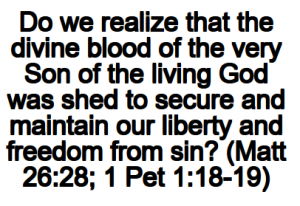 disciple of Jesus has all the fruit of the Holy Spirit which include, “Love, joy, peace…” (Galatians 5:22-23) God gives His people “power… love, and a sound mind.” (2 Timothy 1:7) God’s Word has the answer to “ALL things that pertain unto life and godliness” and that specifically includes a “sound mind.” (2 Peter 1:3-4) Holy Scripture specifically uses the terms “sound mind” and “sound heart” which come only from learning and adhering to “sound doctrine.”
disciple of Jesus has all the fruit of the Holy Spirit which include, “Love, joy, peace…” (Galatians 5:22-23) God gives His people “power… love, and a sound mind.” (2 Timothy 1:7) God’s Word has the answer to “ALL things that pertain unto life and godliness” and that specifically includes a “sound mind.” (2 Peter 1:3-4) Holy Scripture specifically uses the terms “sound mind” and “sound heart” which come only from learning and adhering to “sound doctrine.”
We live in a fallen world and were born in sin. Via the things that have happened to us and that we ourselves have perpetrated on others, fragmentation of our hearts has occurred. Only One can make us whole.
“And there was delivered unto him the book of the prophet Esaias. And when he had opened the book, he found the place where it was written, 18 The Spirit of the Lord is upon me, because he hath anointed me to preach the gospel to the poor; he hath sent me to heal the brokenhearted, to preach deliverance to the captives, and recovering of sight to the blind, to set at liberty them that are bruised, 19 To preach the acceptable year of the Lord.” Luke 4:17-19
“And the very God of peace sanctify you wholly; and I pray God your whole spirit and soul and body be preserved blameless unto the coming of our Lord Jesus Christ. 24 Faithful is he that calleth you, who also will do it.” 1 Thessalonians 5:23-24
“He healeth the broken in heart, and bindeth up their wounds.” Psalms 147:3
Counting it all Joy
“My brethren, count it all joy when ye fall into divers temptations; 3 Knowing this, that the trying of your faith worketh patience. 4 But let patience have her perfect work, that ye may be perfect and entire, wanting nothing. 5 If any of you lack wisdom, let him ask of God, that giveth to all men liberally, and upbraideth not; and it shall be given him. 6 But let him ask in faith, nothing wavering. For he that wavereth is like a wave of the sea driven with the wind and tossed. 7 For let not that man think that he shall receive any thing of the Lord. 8 A double minded man is unstable in all his ways.” James 1:2-8
Through the trials we face in this life, we must learn to “count it all joy when ye fall into divers temptations”, trust God not men, ask for and rely on His wisdom and not waver, but rather finished our course trusting and walking with Christ to the end of our lives.
“I have fought a good fight, I have finished my course, I have kept the faith:” 2 Timothy 4:7
“For God is not unrighteous to forget your work and labour of love, which ye have shewed toward his name, in that ye have ministered to the saints, and do minister. 11 And we desire that every one of you do shew the same diligence to the full assurance of hope unto the end: 12 That ye be not slothful, but followers of them who through faith and patience inherit the promises.” Hebrews 6:10-12
The Whole Heart
“And all Judah rejoiced at the oath: for they had sworn with all their heart, and sought him with their whole desire; and he was found of them: and the LORD gave them rest round about.” 2 Chronicles 15:15
The result of seeking the LORD with a whole heart is that He gives us “rest round about.”
“But whoso hearkeneth unto me shall dwell safely, and shall be quiet from fear of evil.” Proverbs 1:33
9 Times in the book of Psalms the words “Whole Heart” appear. Here’s the first 3 of that collection:
“I will praise thee, O LORD, with my WHOLE HEART; I will shew forth all thy marvellous works.” Psalms 9:1
“Praise ye the LORD. I will praise the LORD with my WHOLE HEART, in the assembly of the upright, and in the congregation.” Psalms 111:1
“Blessed are they that keep his testimonies, and that seek him with the WHOLE HEART.” Psalms 119:2
PRAYER: Dear heavenly Father, I have sinned against You by not wholly trusting You. I have not sought You with my whole heart. Here and now I confess this for the evil sin of unbelief and rebellion that it is and ask You to please forgive me now in the name of Jesus. Please wash me afresh from all my sins with the precious blood of Jesus Christ. Also please make my heart whole and increase and fill me with Your faith Father, and cause me to trust You with all of my heart, no matter what. I love You my dear LORD. In Jesus’ name. Amen.
Lukewarm is Hell Bound | OSAS/eternal security is a lie from hell |
Support | STORE | Podcasts | Jail/Prison Ministry | Mexico Mission here | All Ministry Updates | The Return of Christ | Stewardship | Apostate Modern Church Exposed | Beware of the BUZZ WORD Bandits [podcast] | Preach the Word | Wolves Exposed | Church Membership Exposed | 100’s of Christ-centered, Scripture-rich Podcasts | Knowing God | The Cross Life | Christology = the Study of Christ
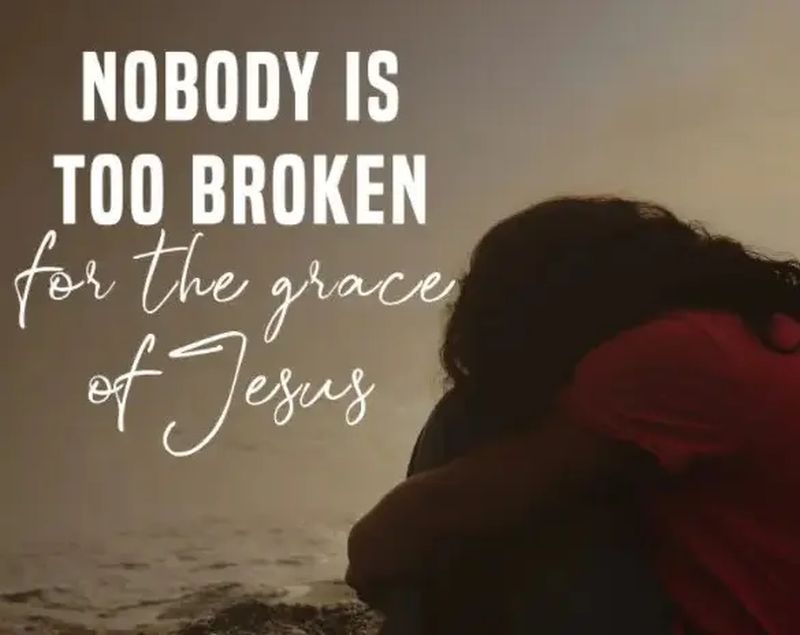
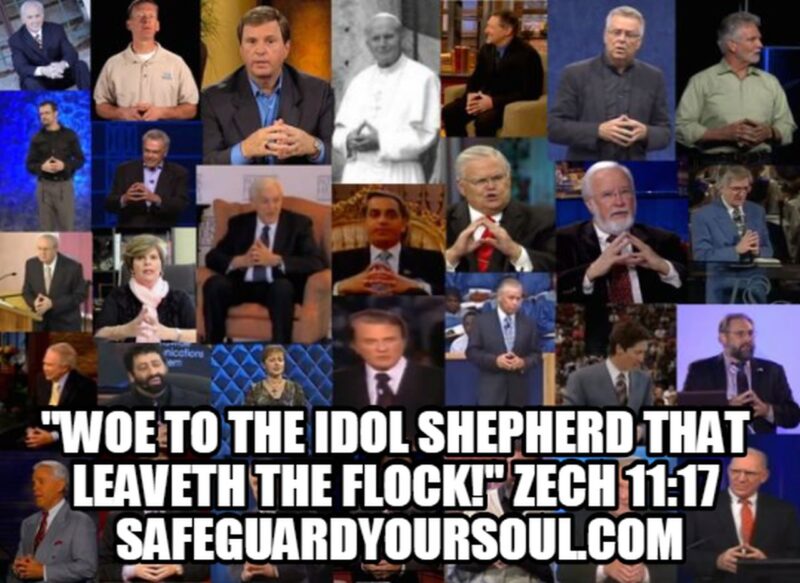


 America12 months ago
America12 months agoThe Drugging of America: The Pharmakeia Sorcery Deception [podcast]

 Articles2 years ago
Articles2 years agoChildren being Rescued in Tunnels: Happening Now – UPDATE!

 Articles8 years ago
Articles8 years agoSelf-Examination in Preparation for the Lord’s Return

 Apostasy2 years ago
Apostasy2 years agoSHOCKING List of False Prophets Most Believe are True


